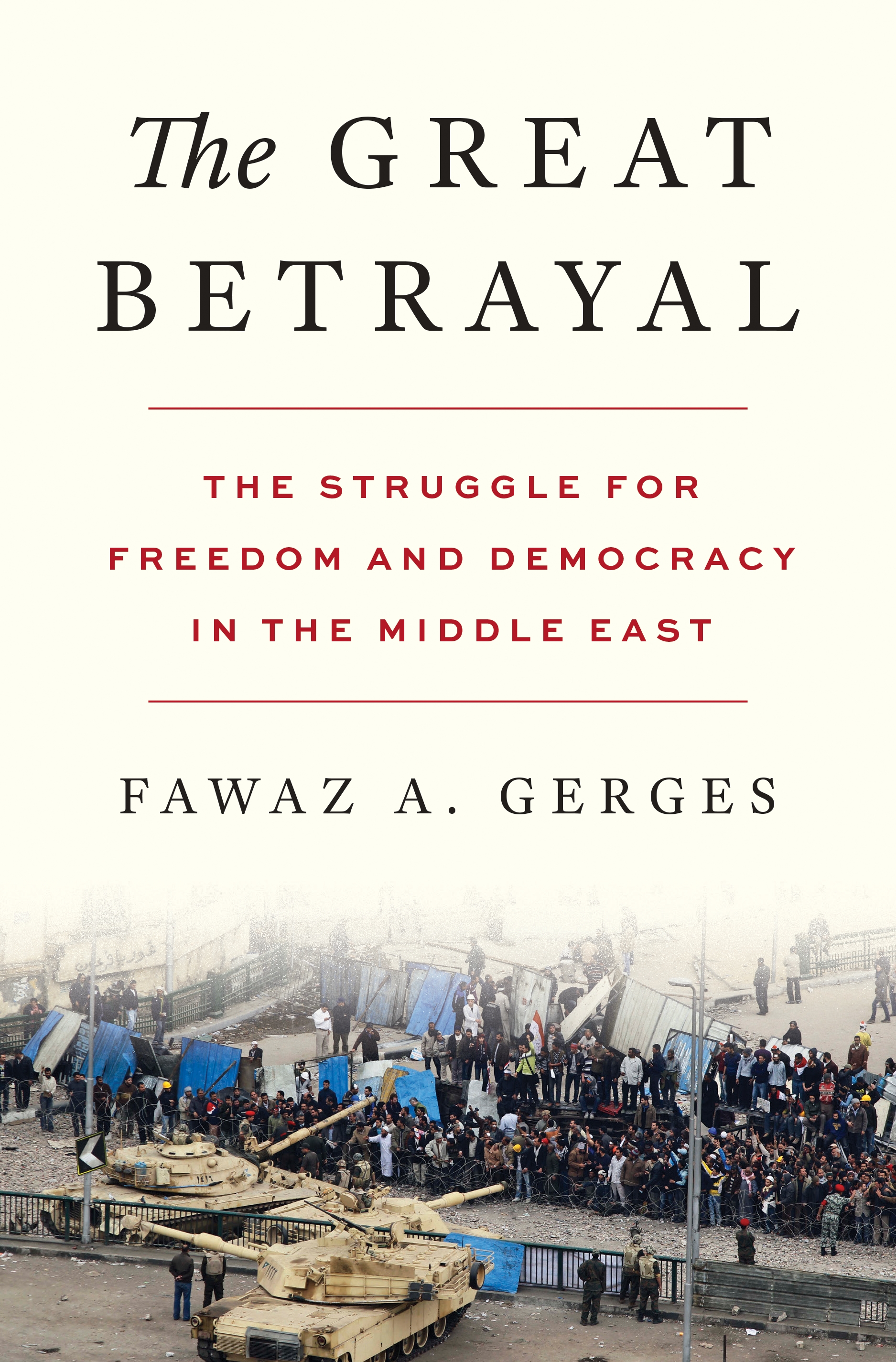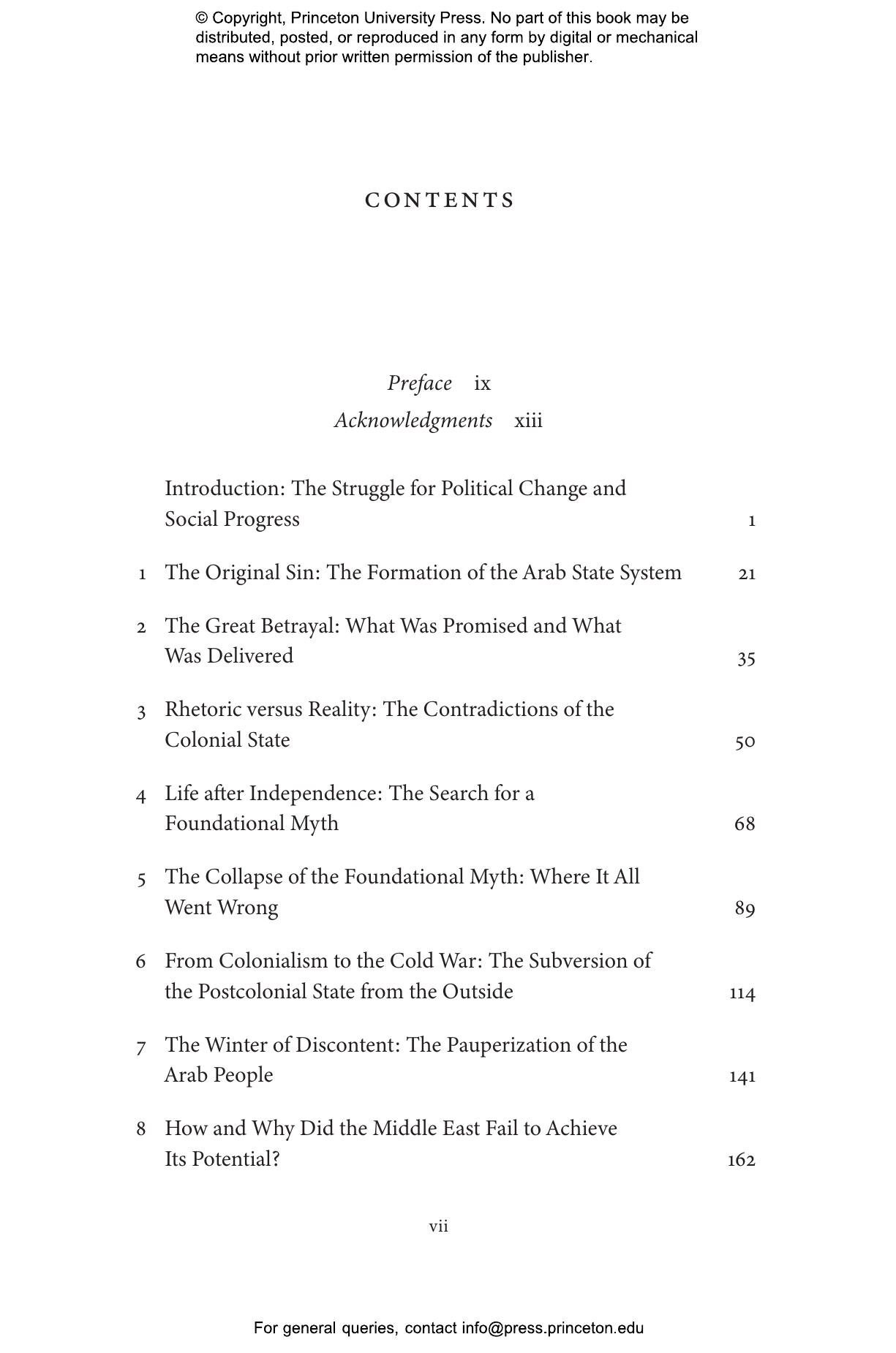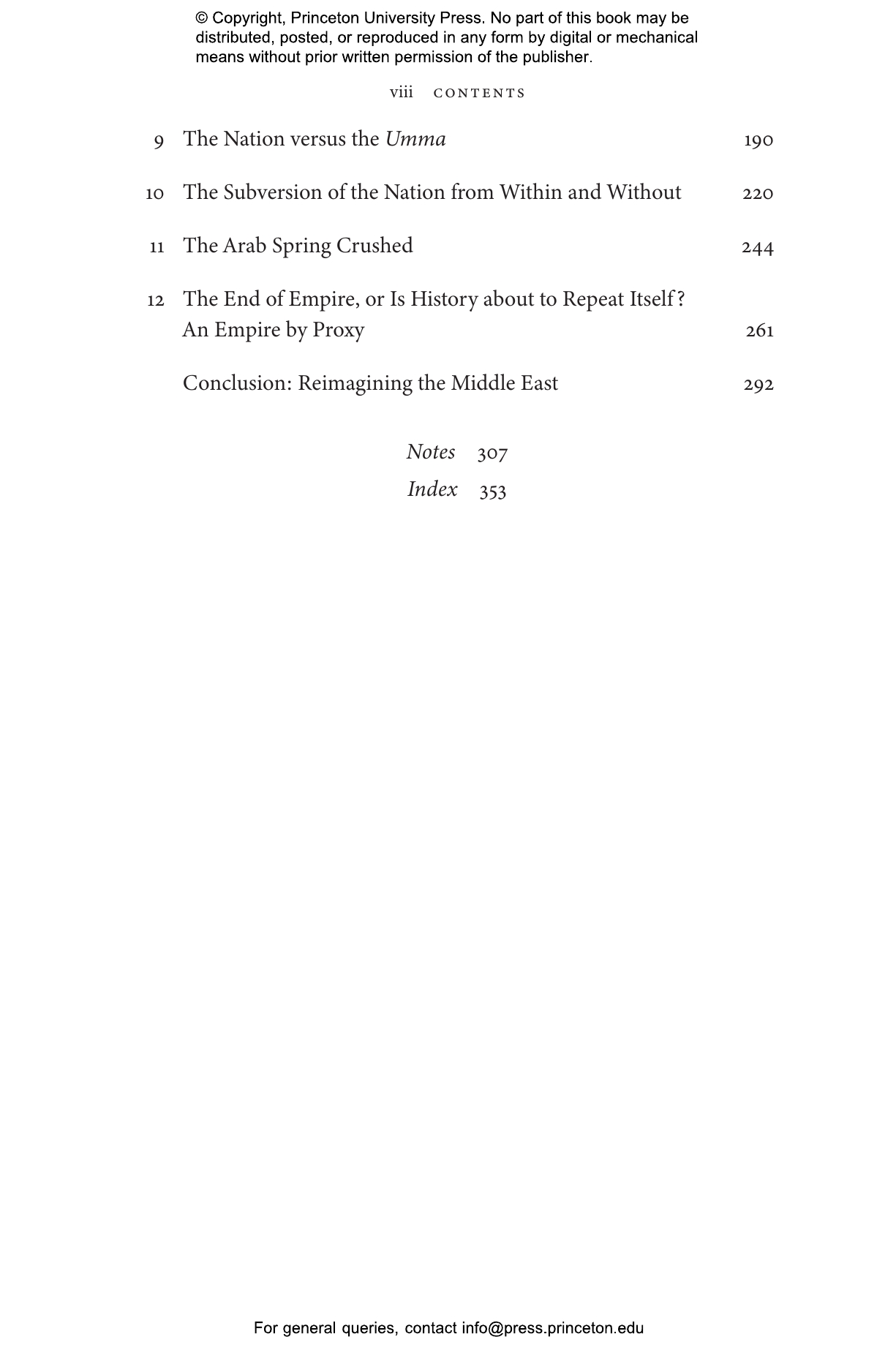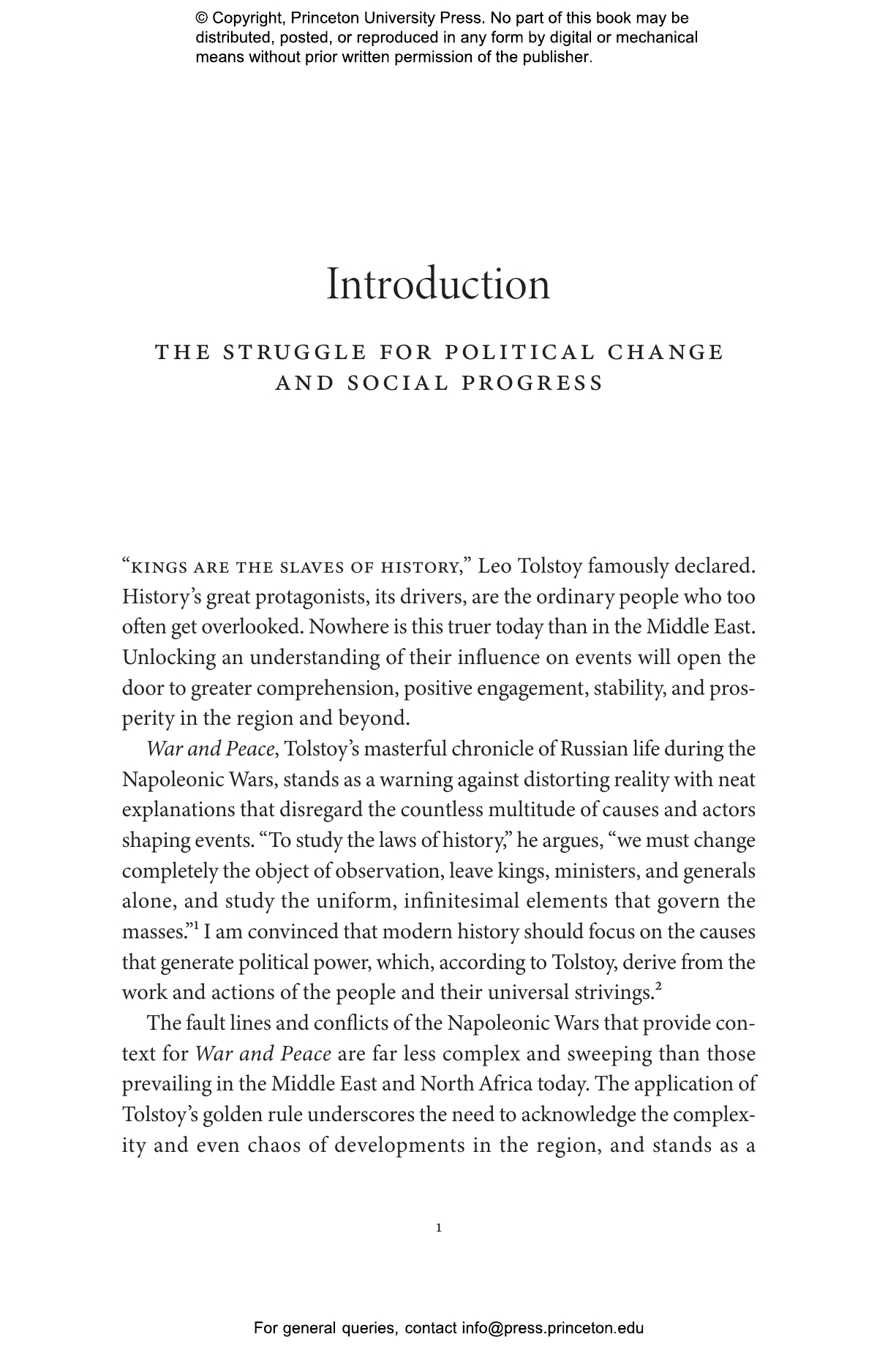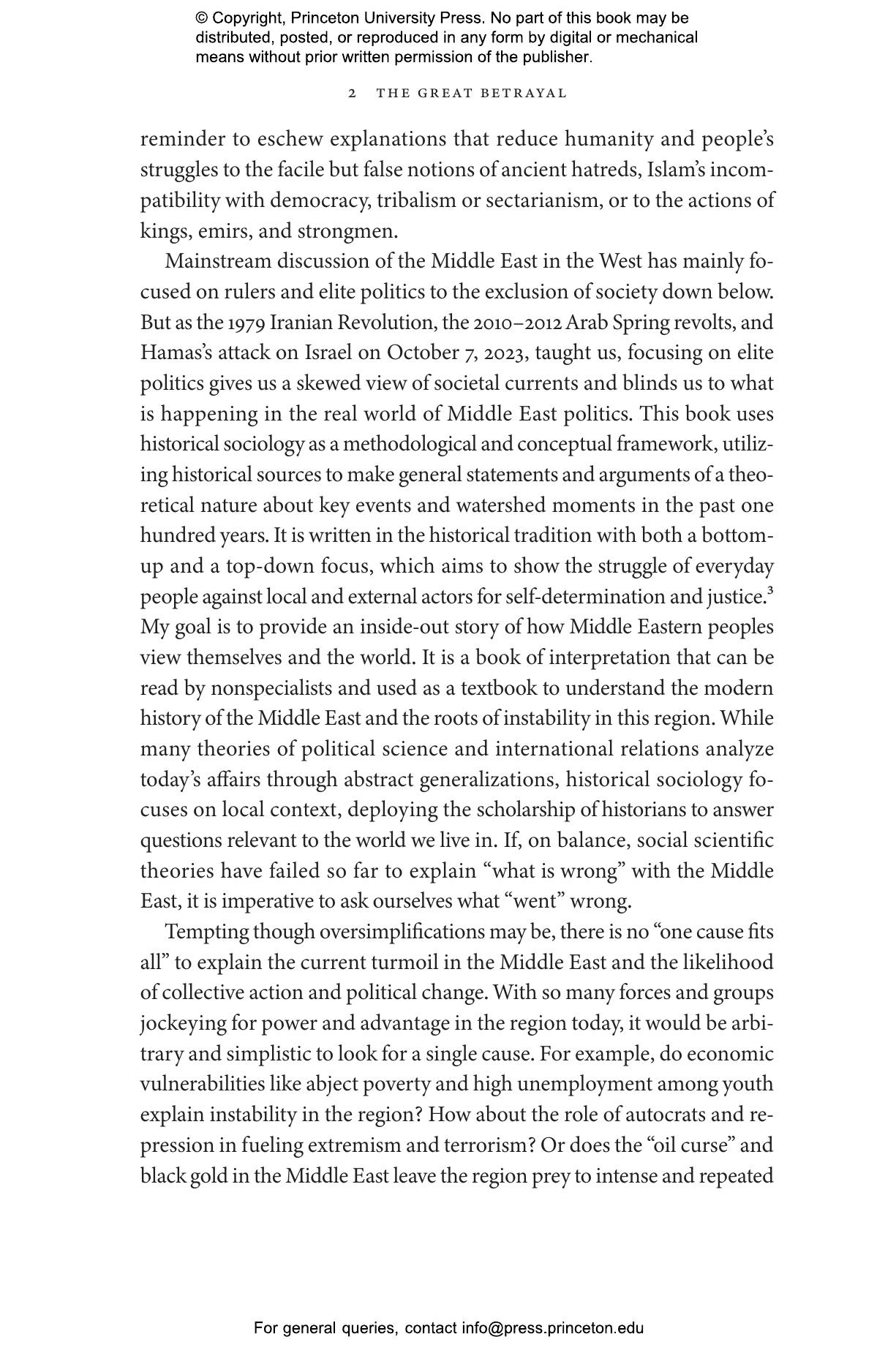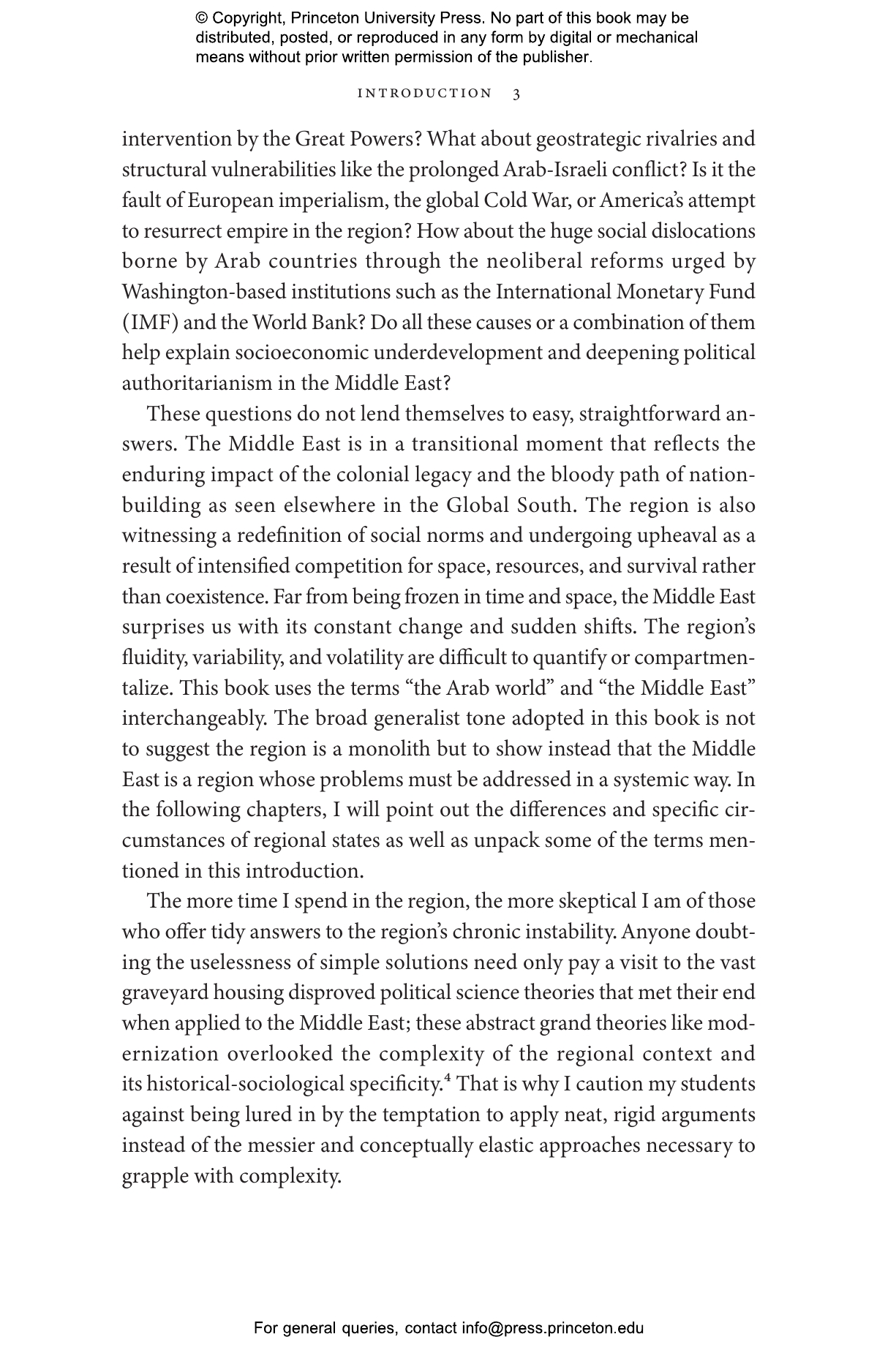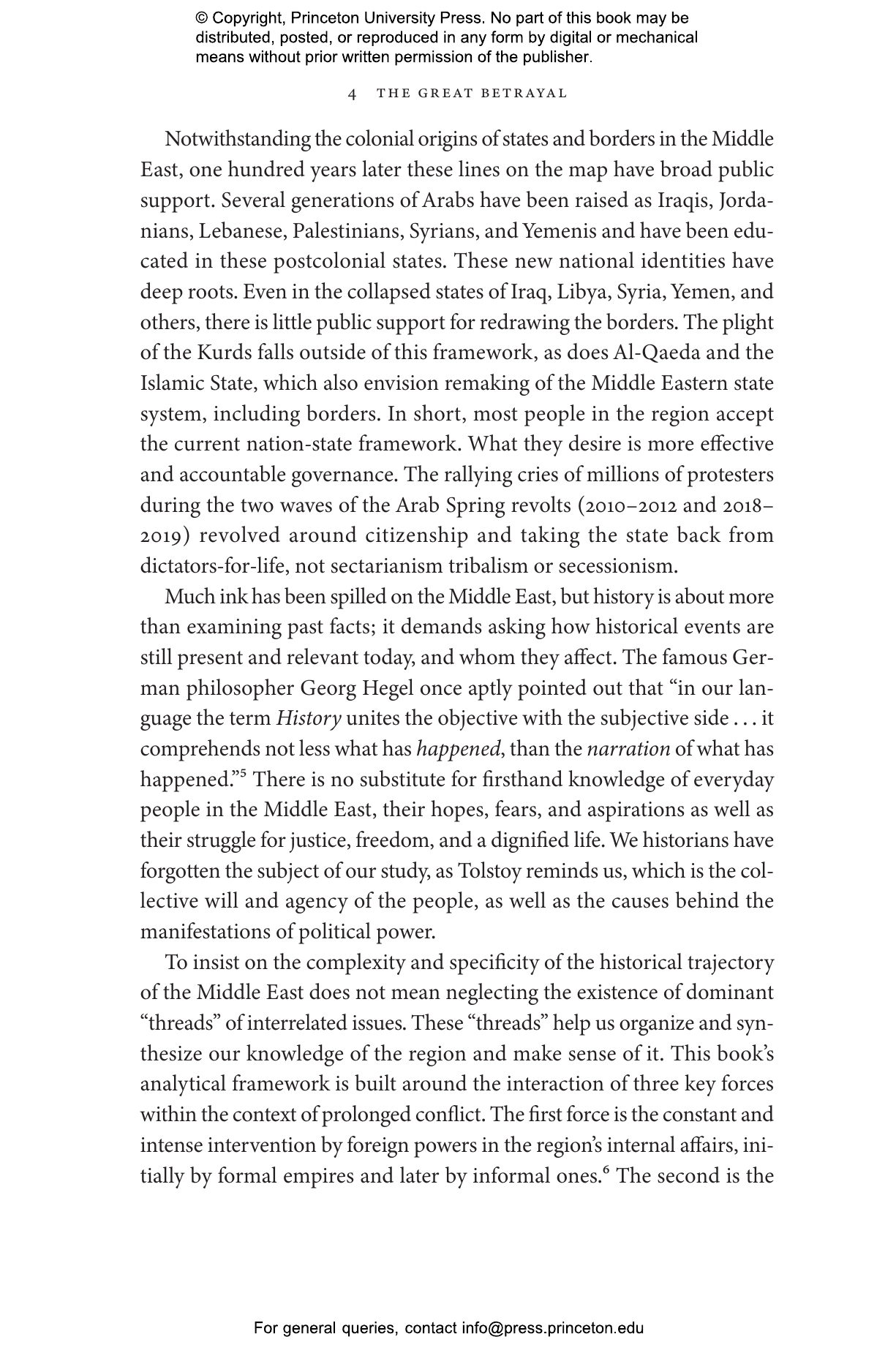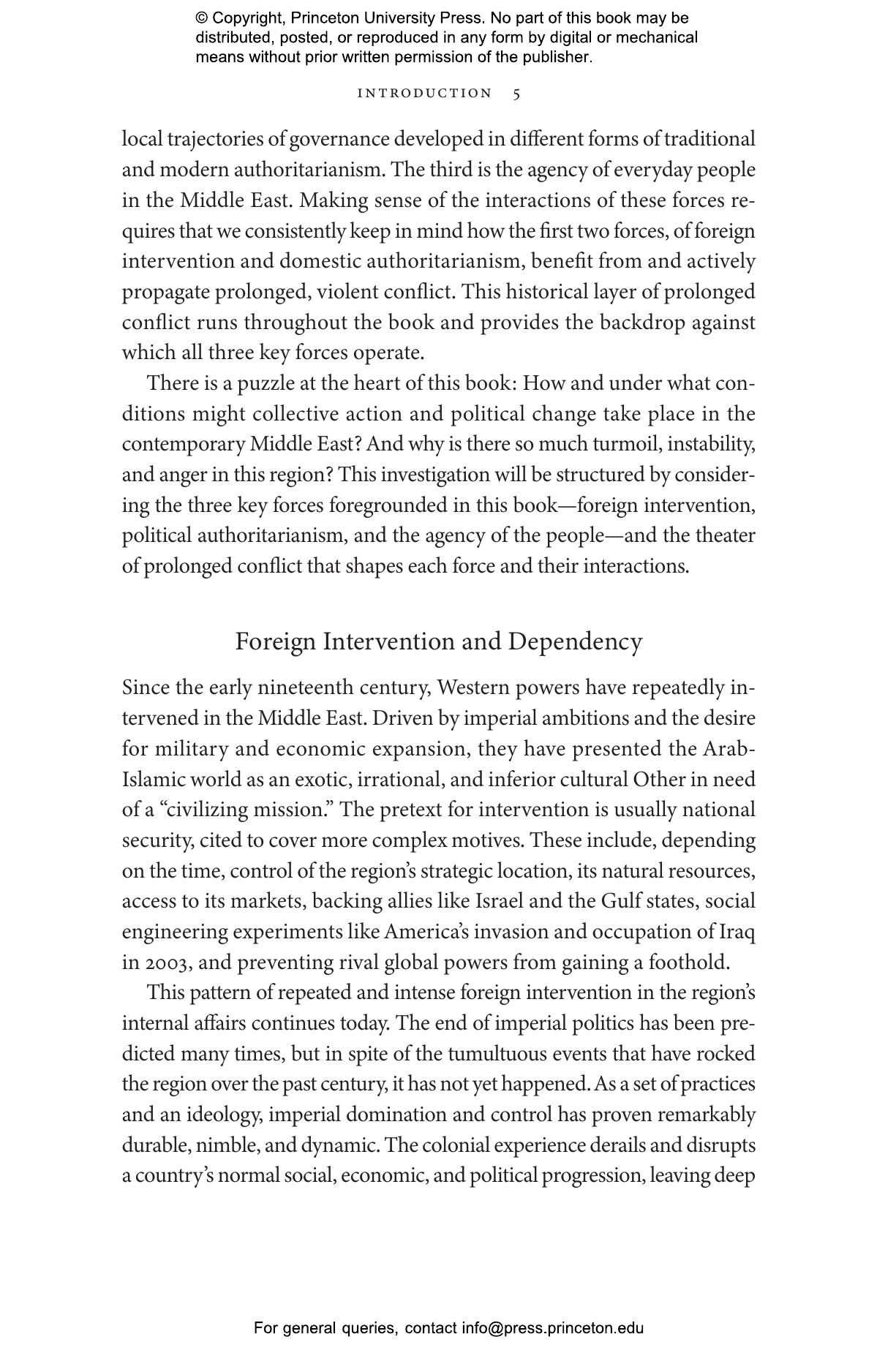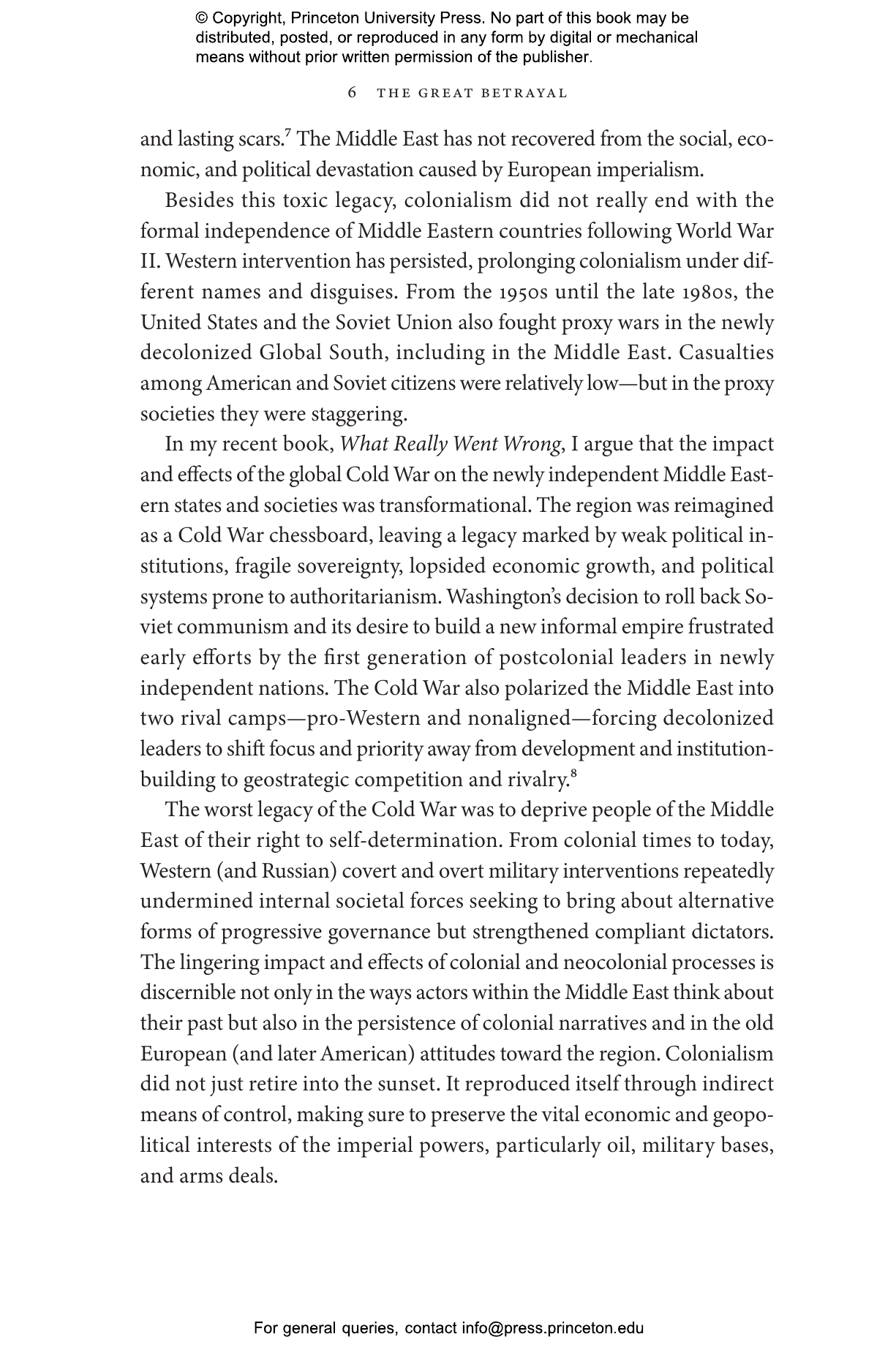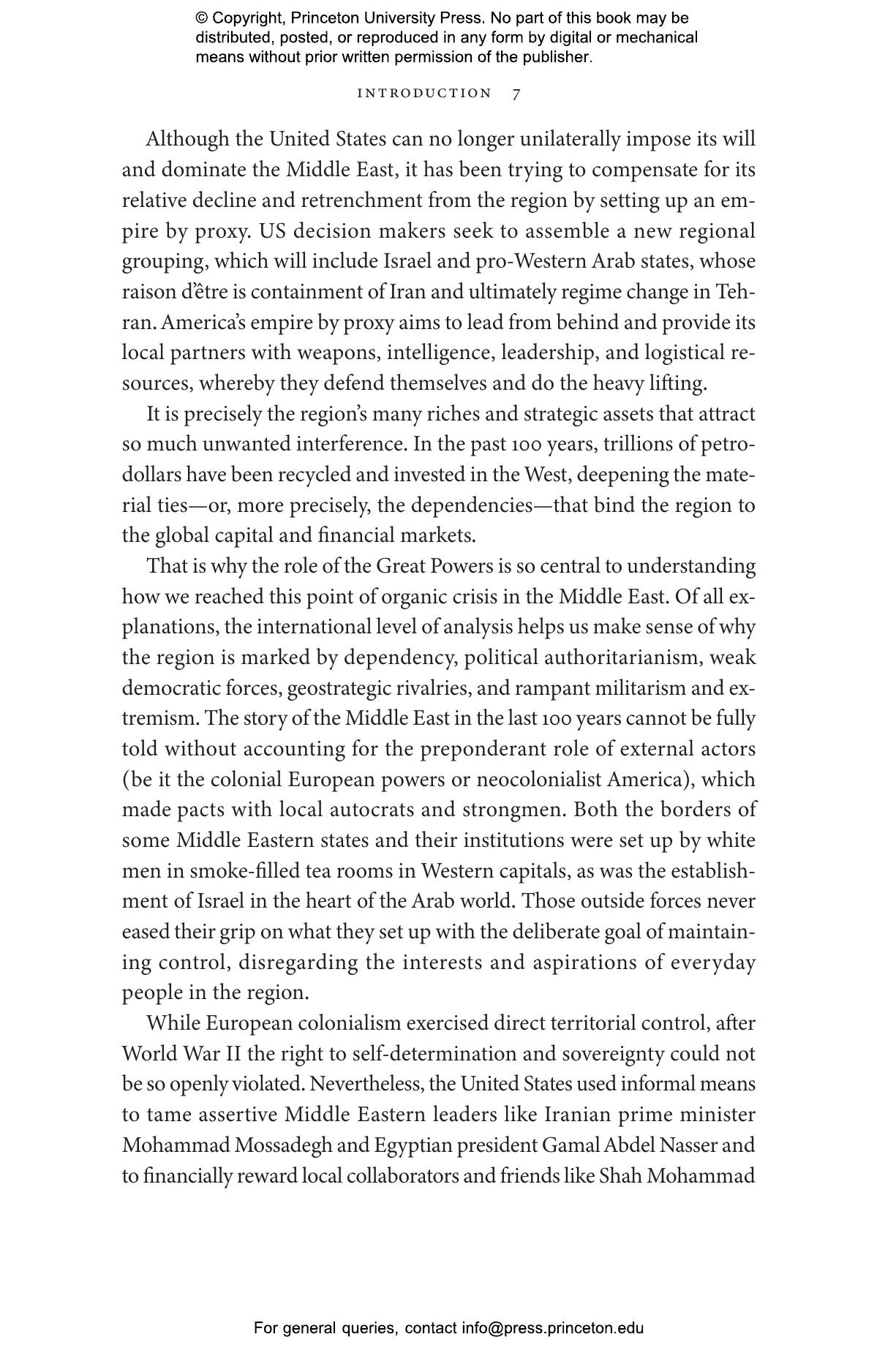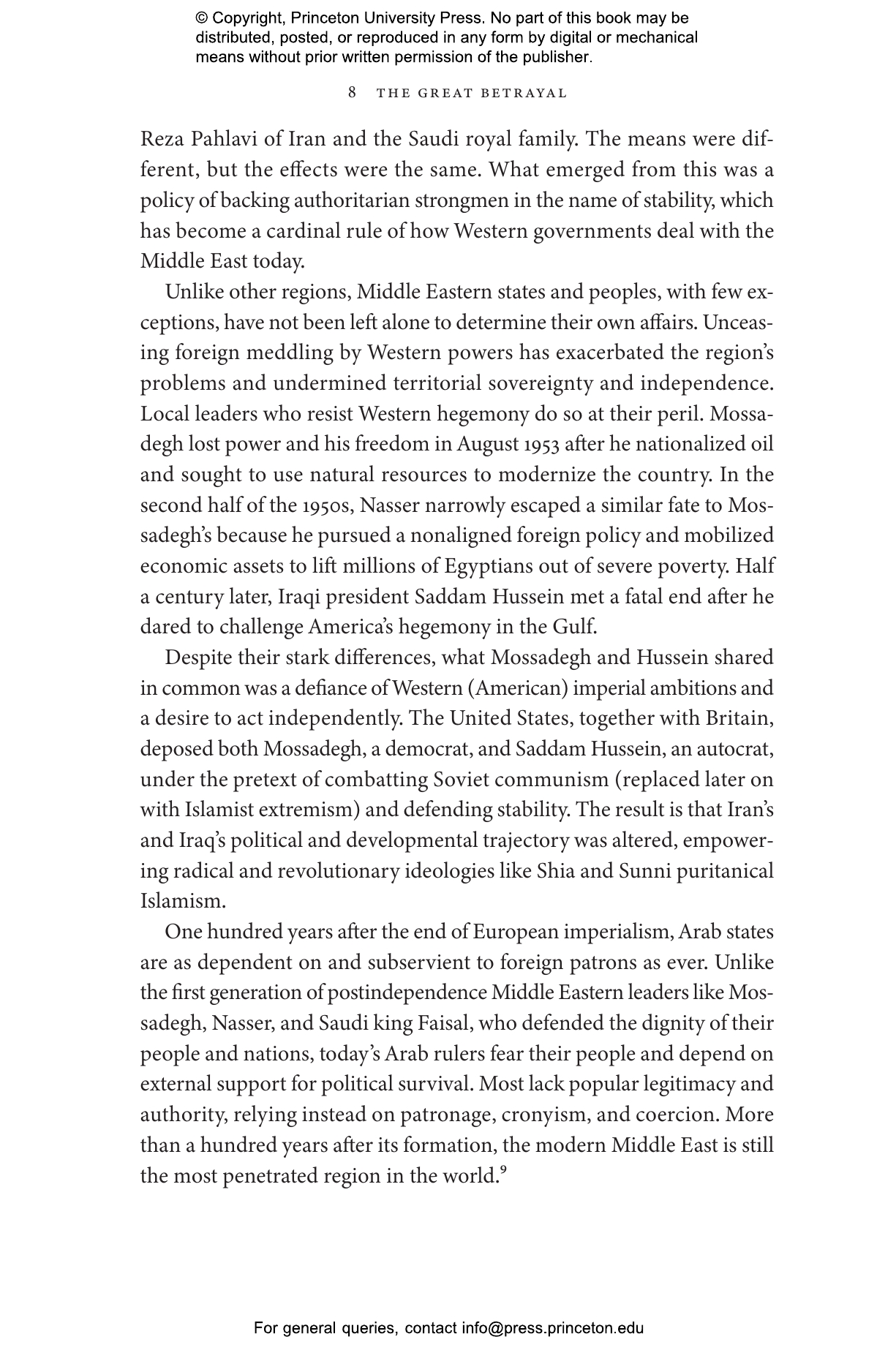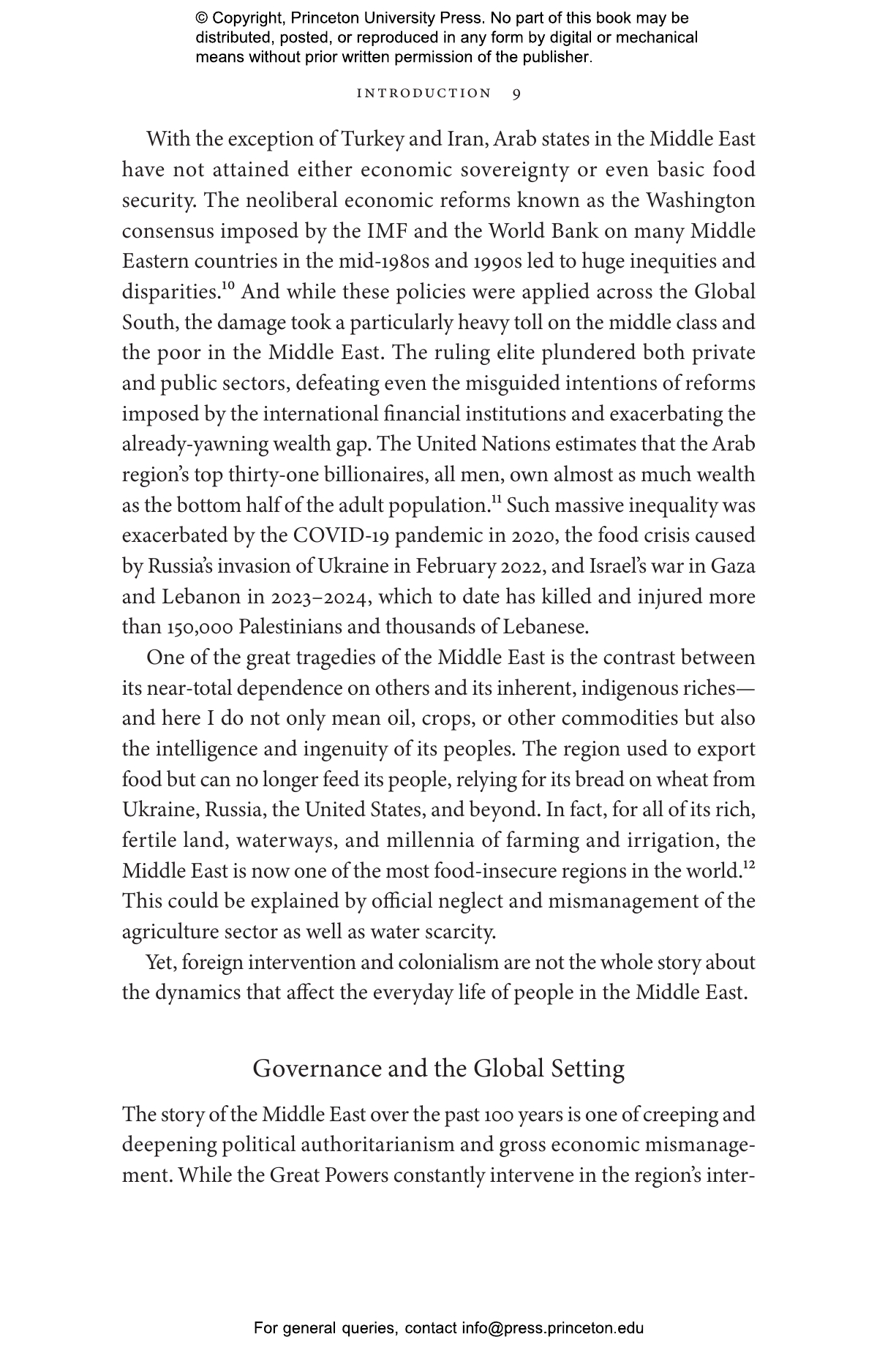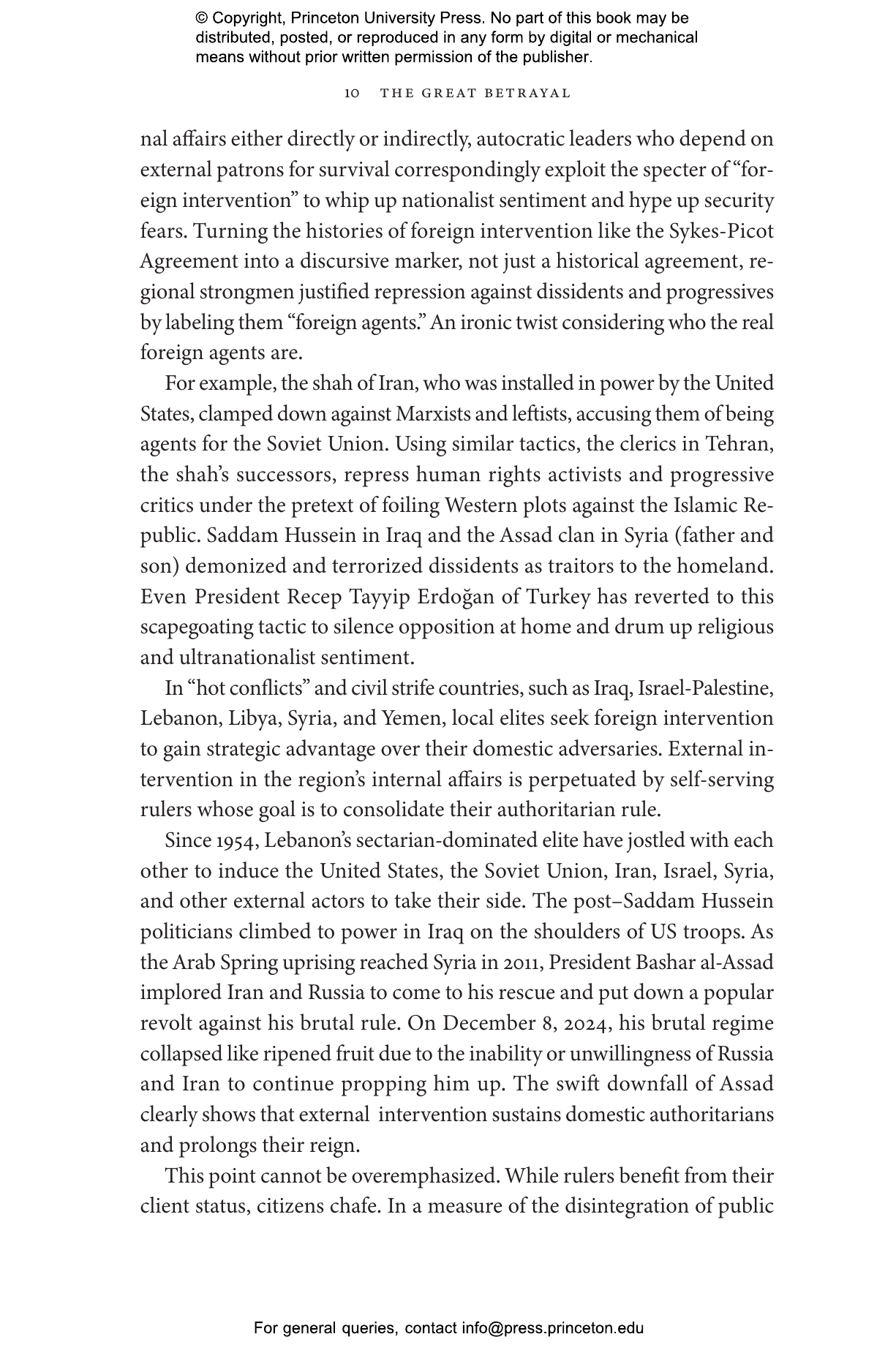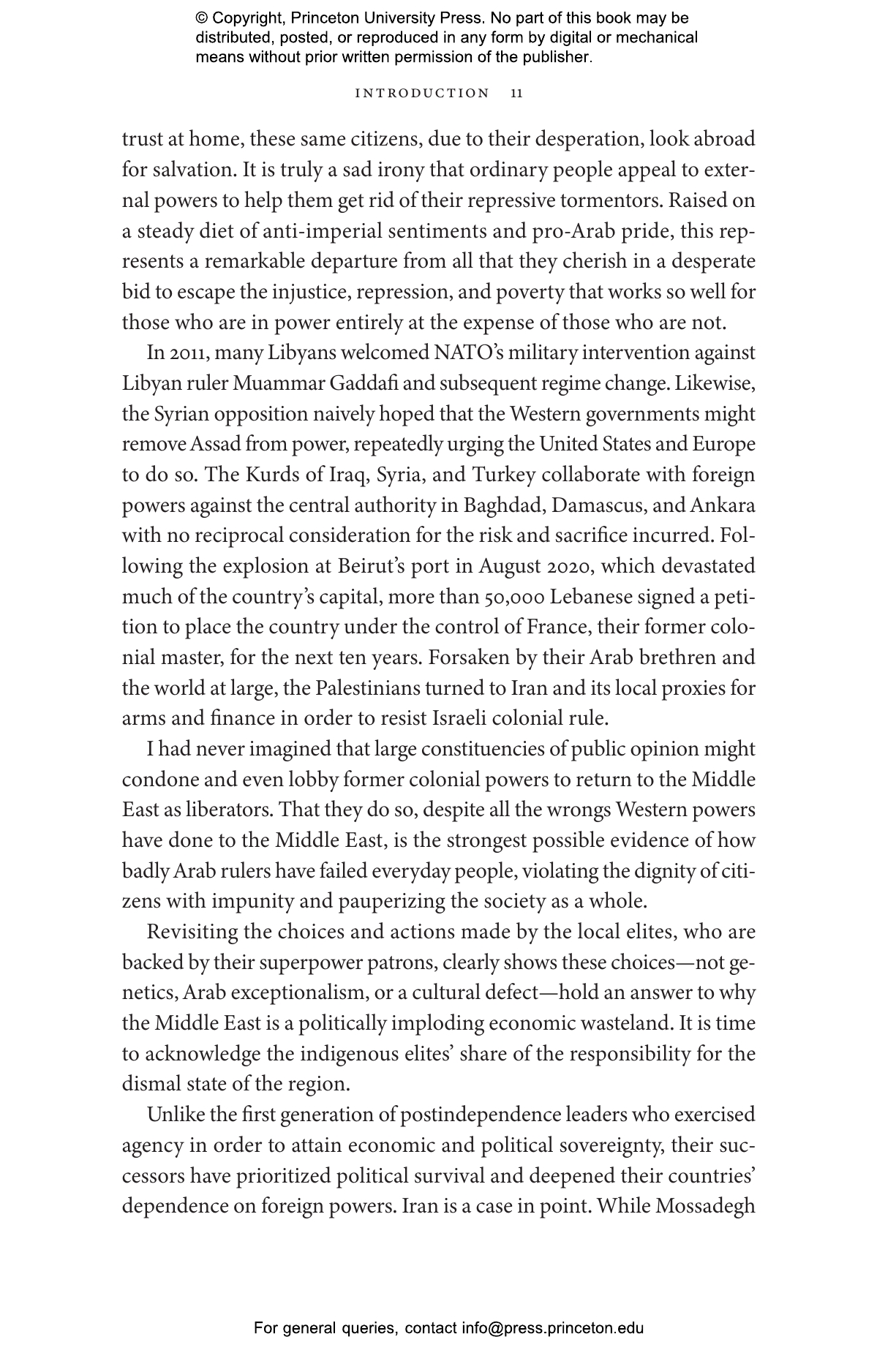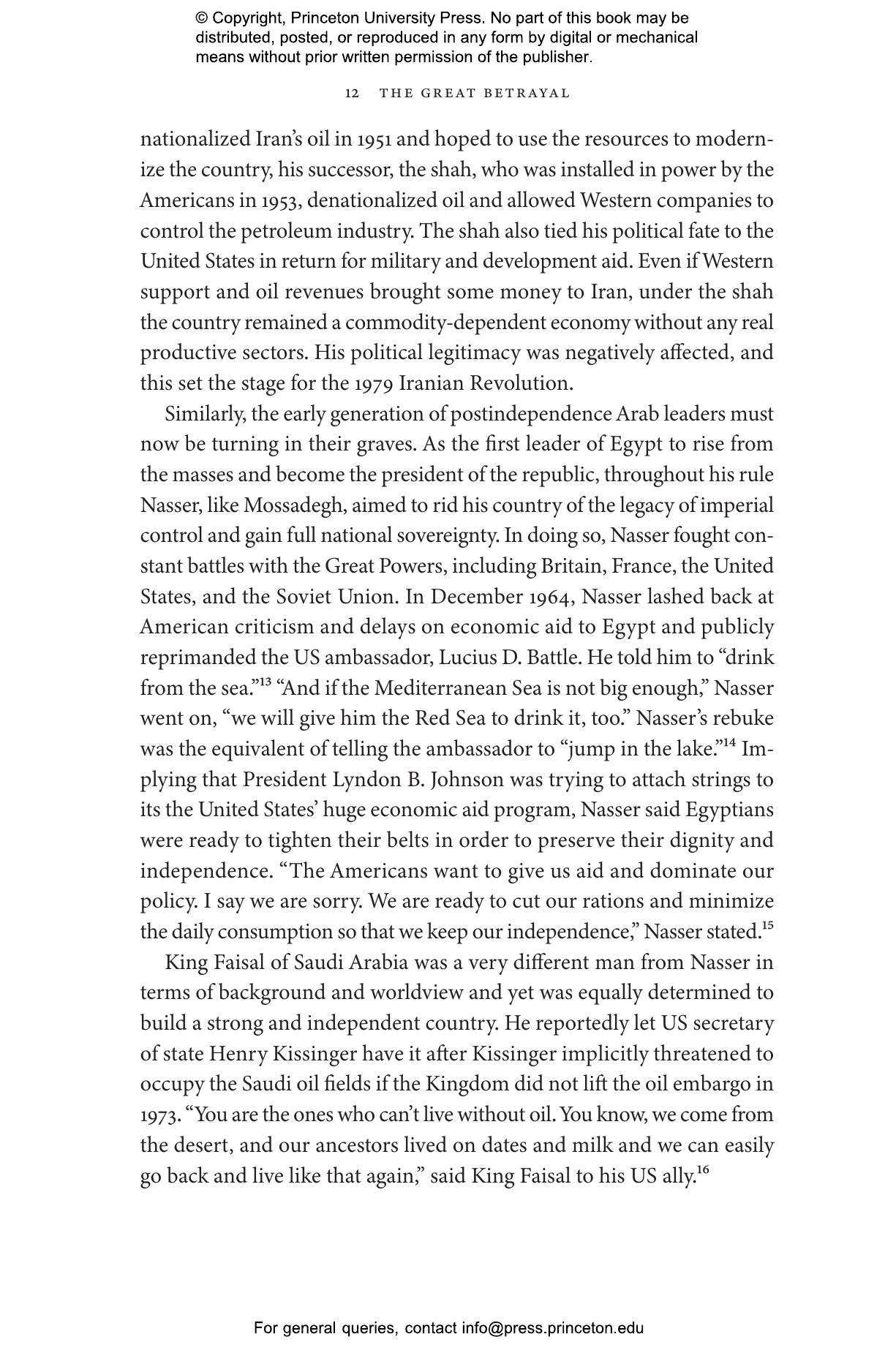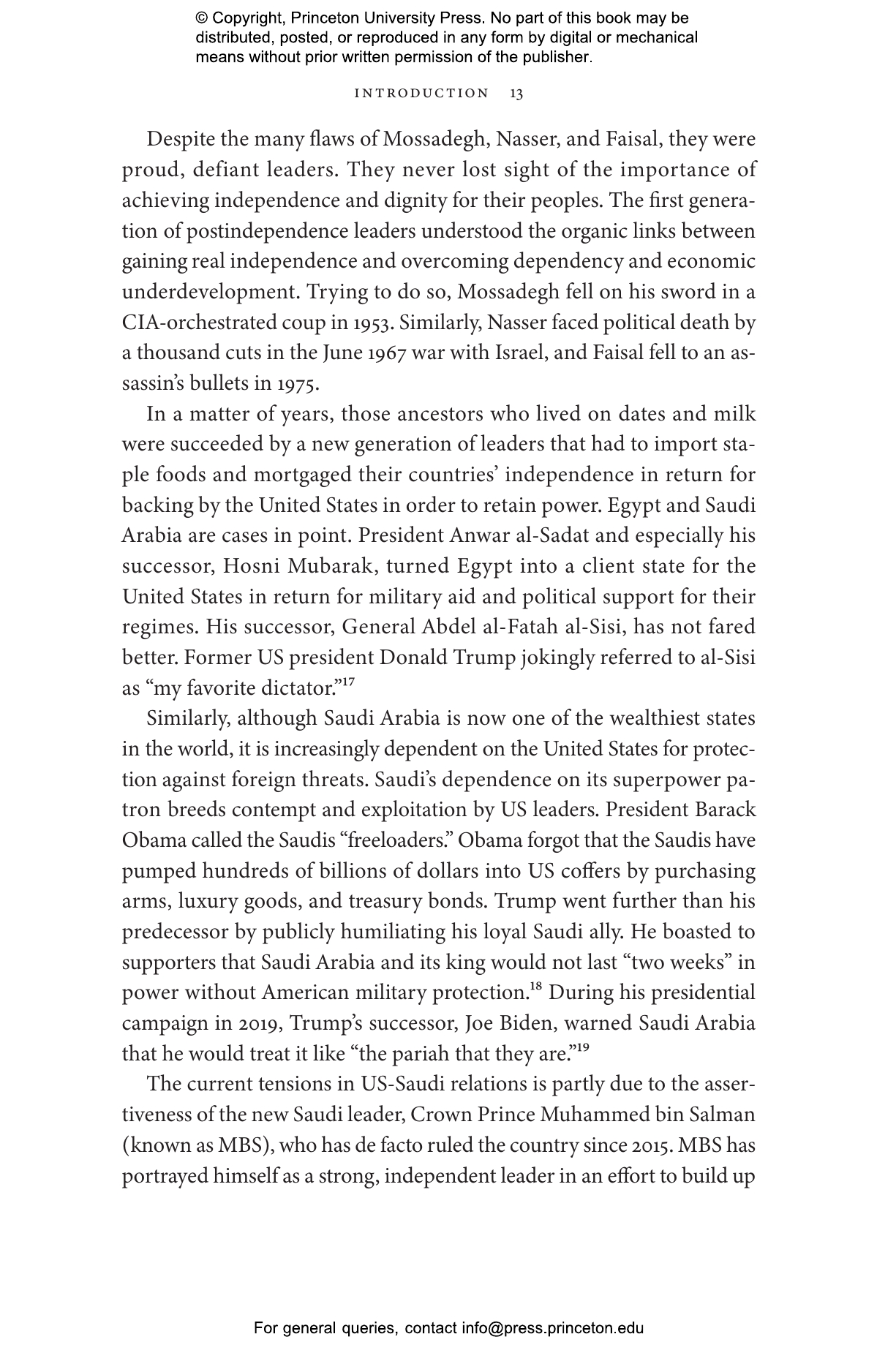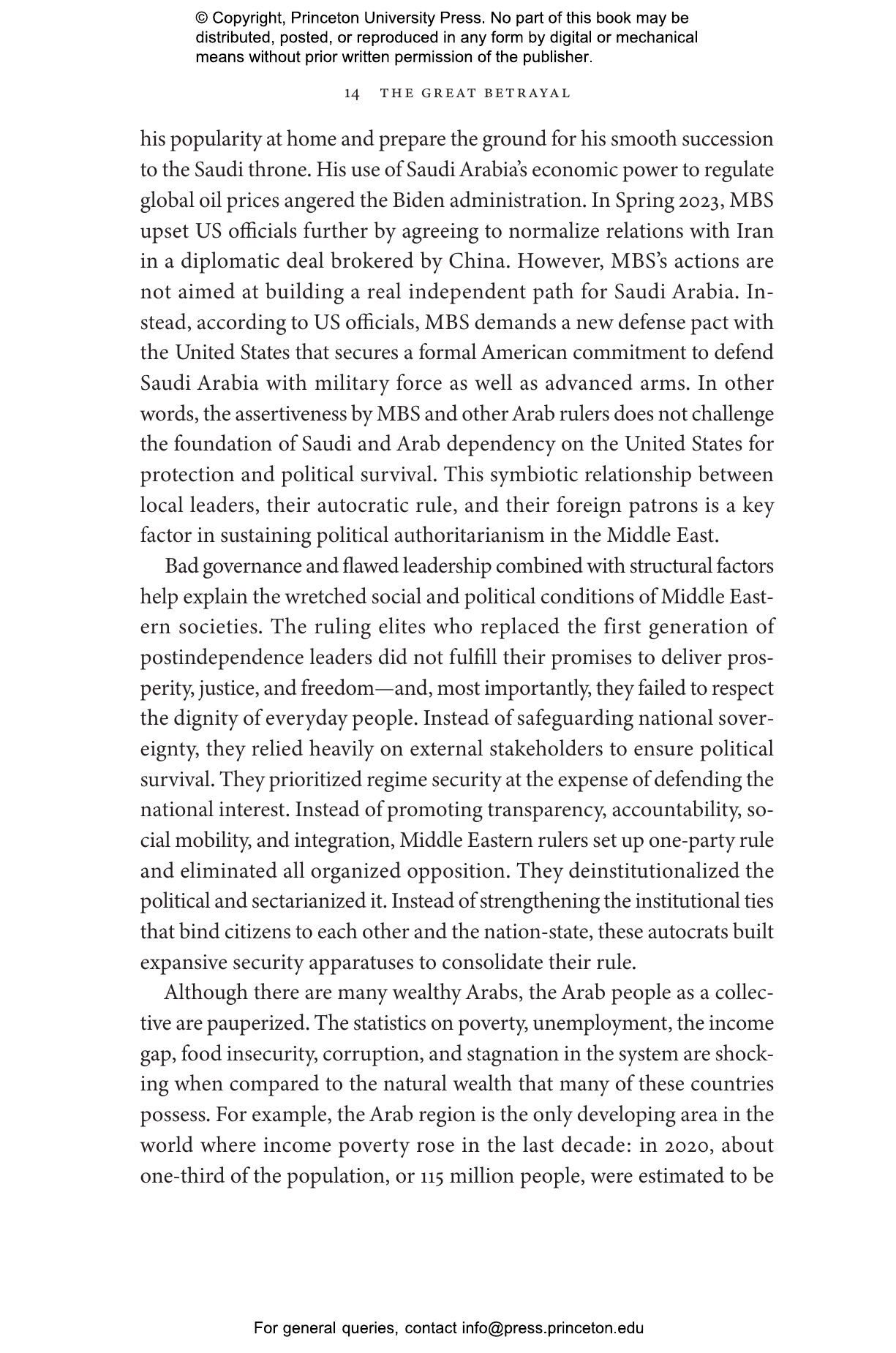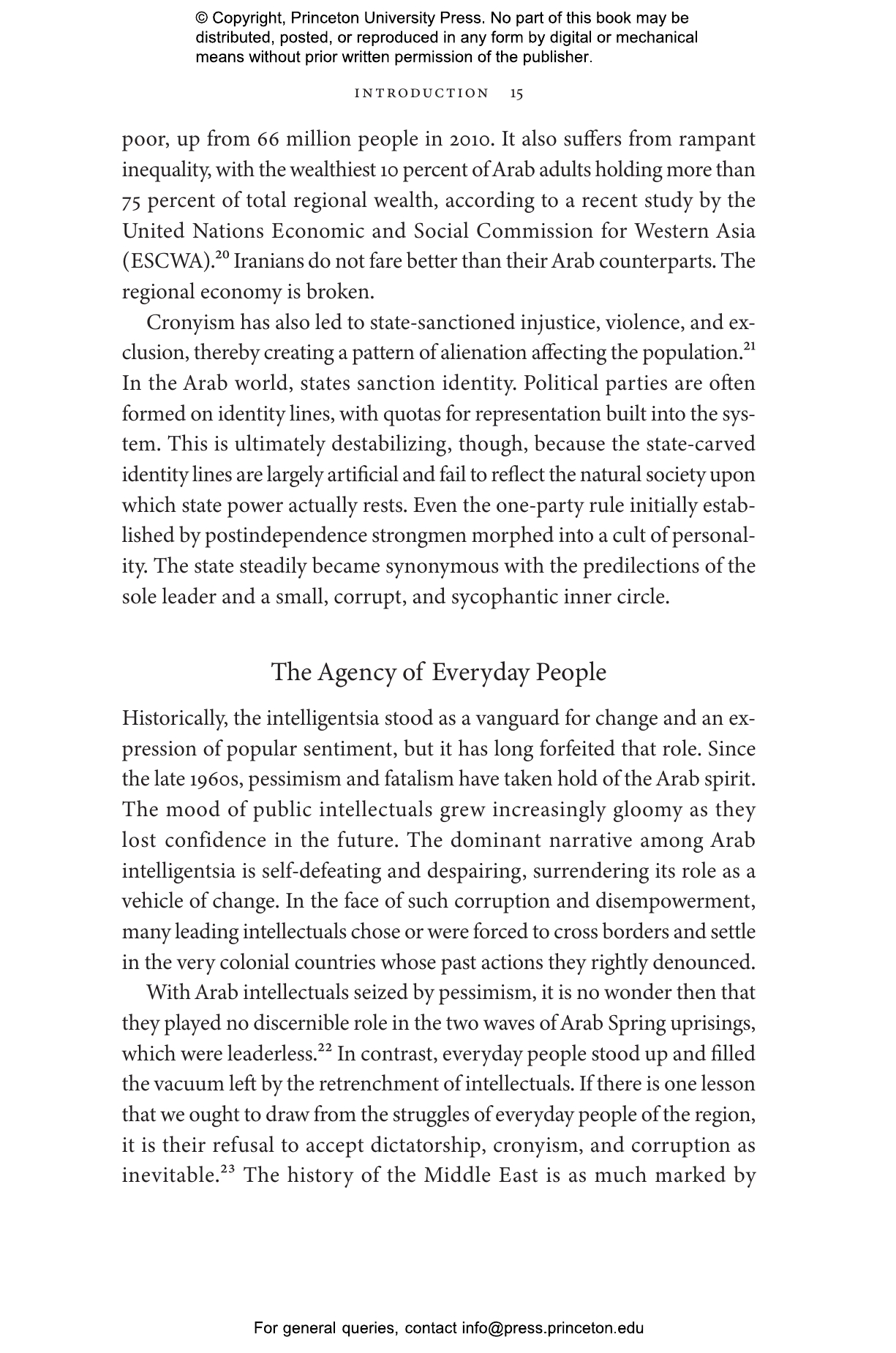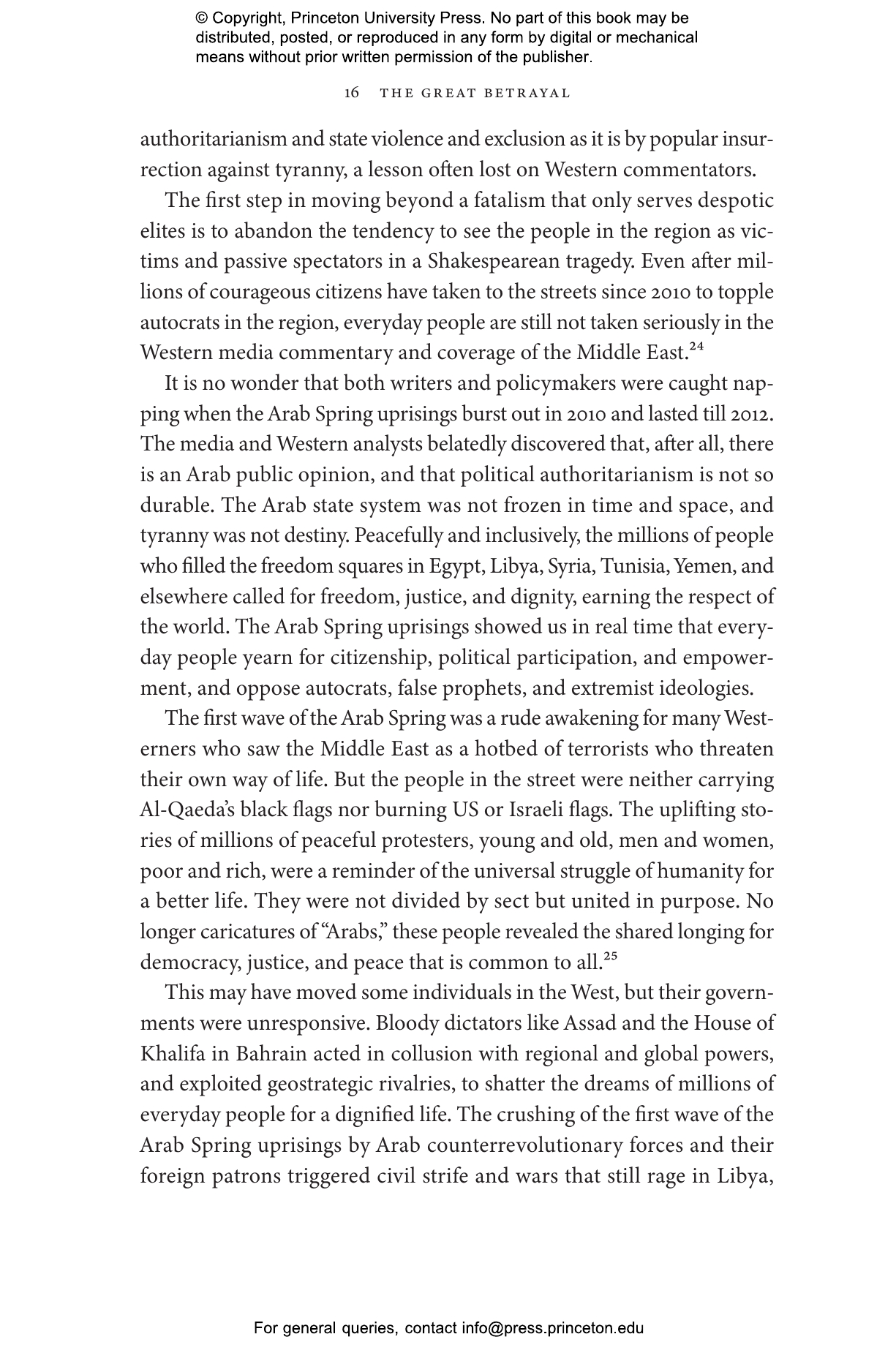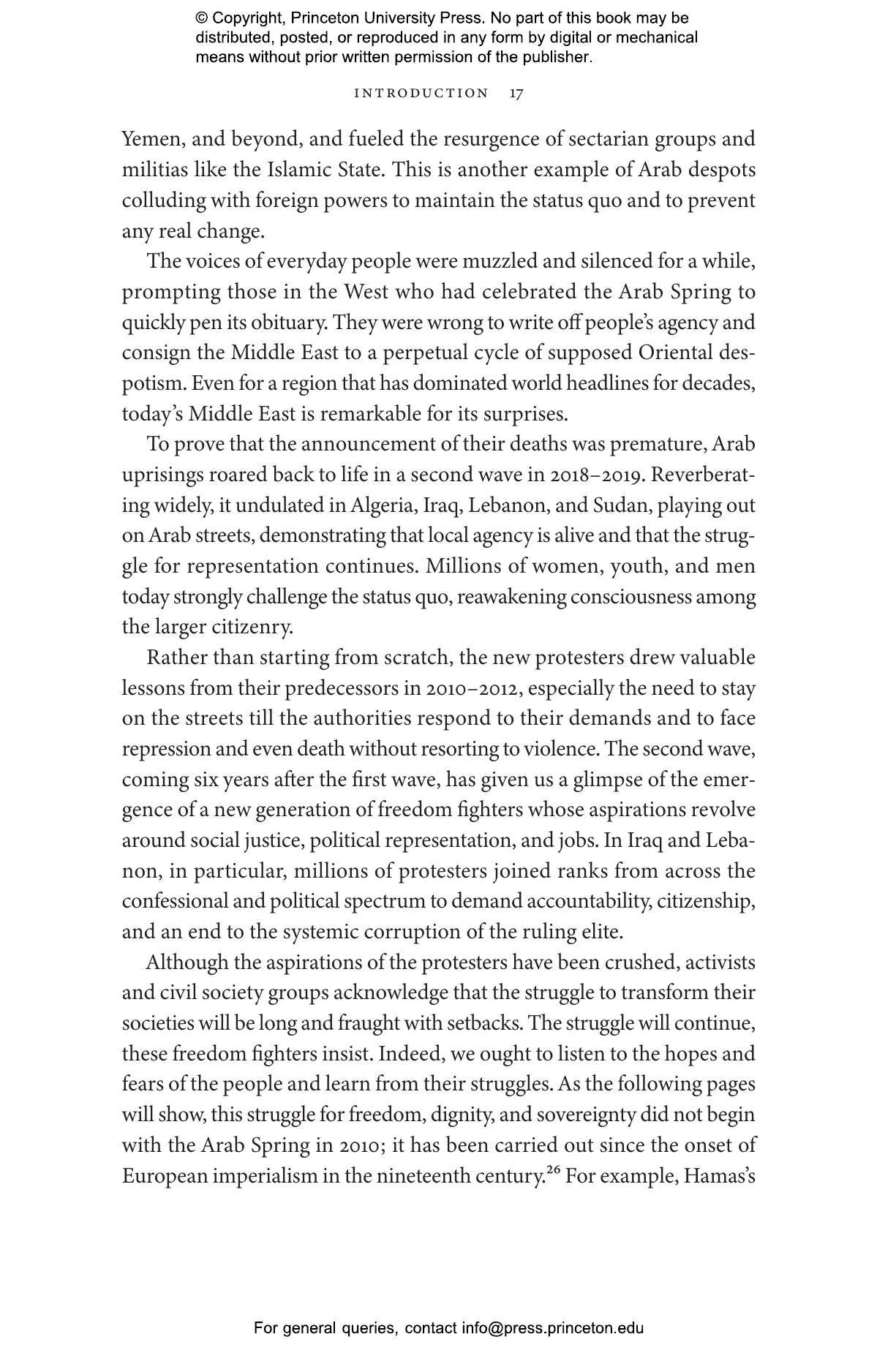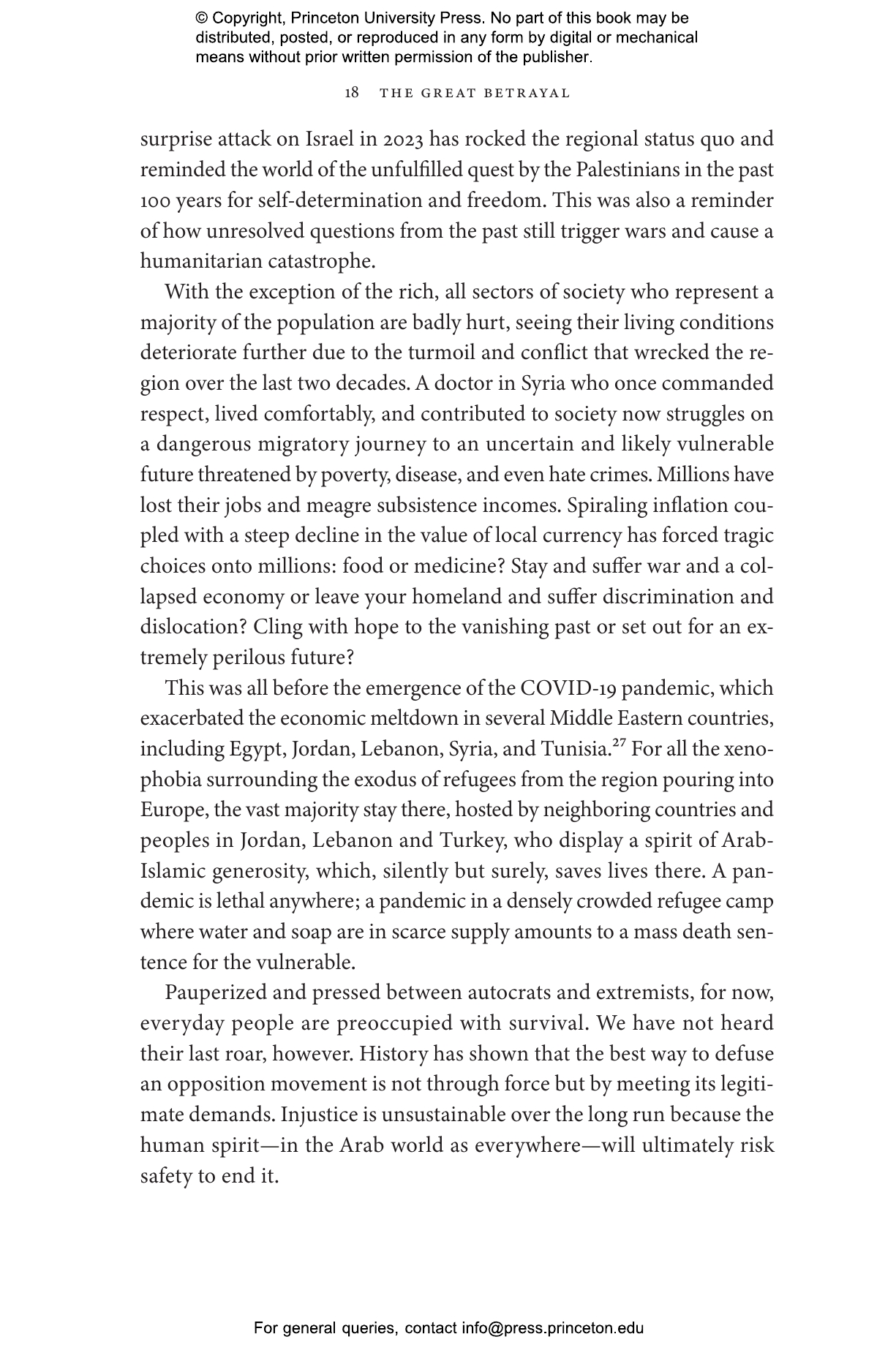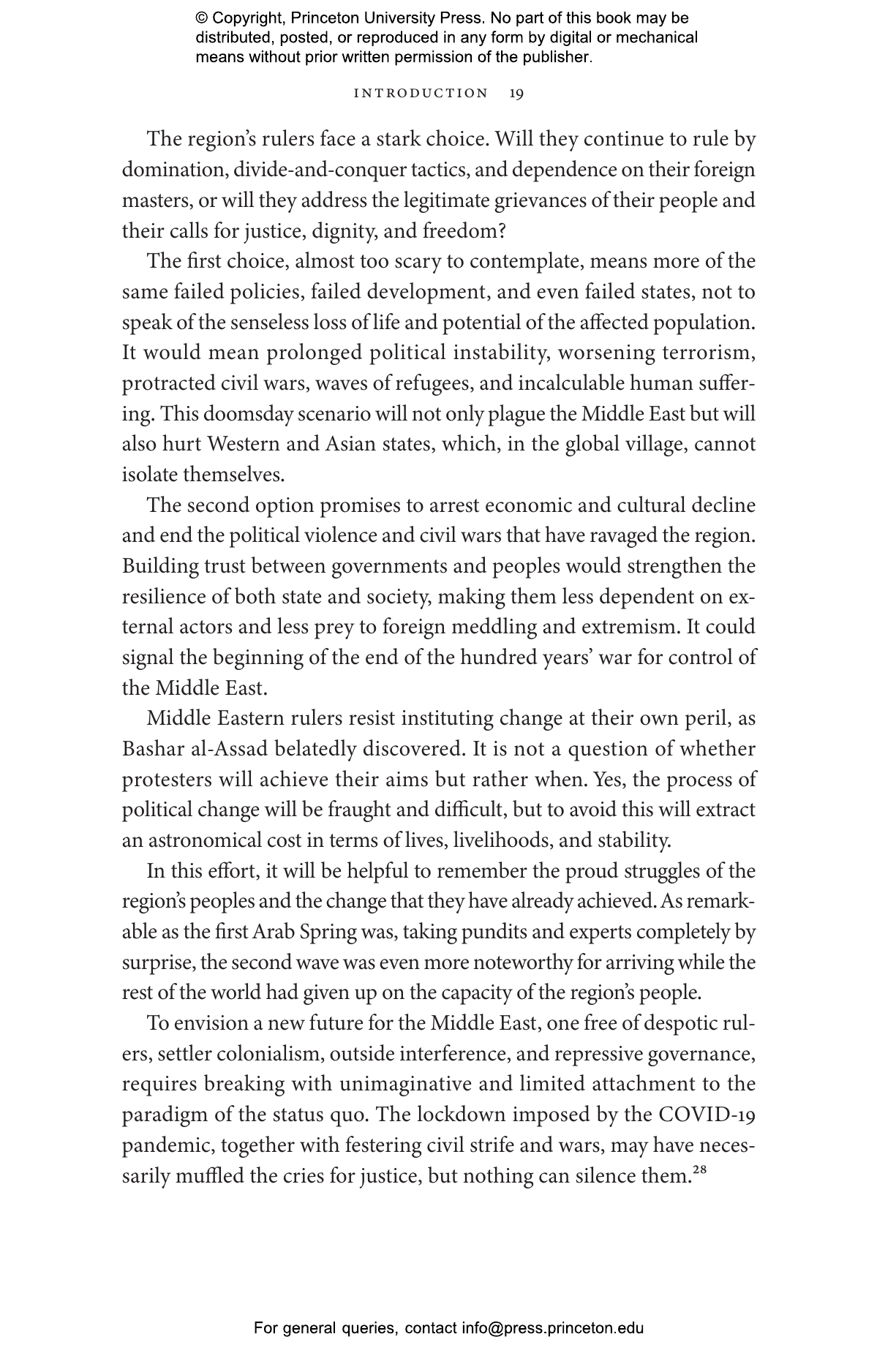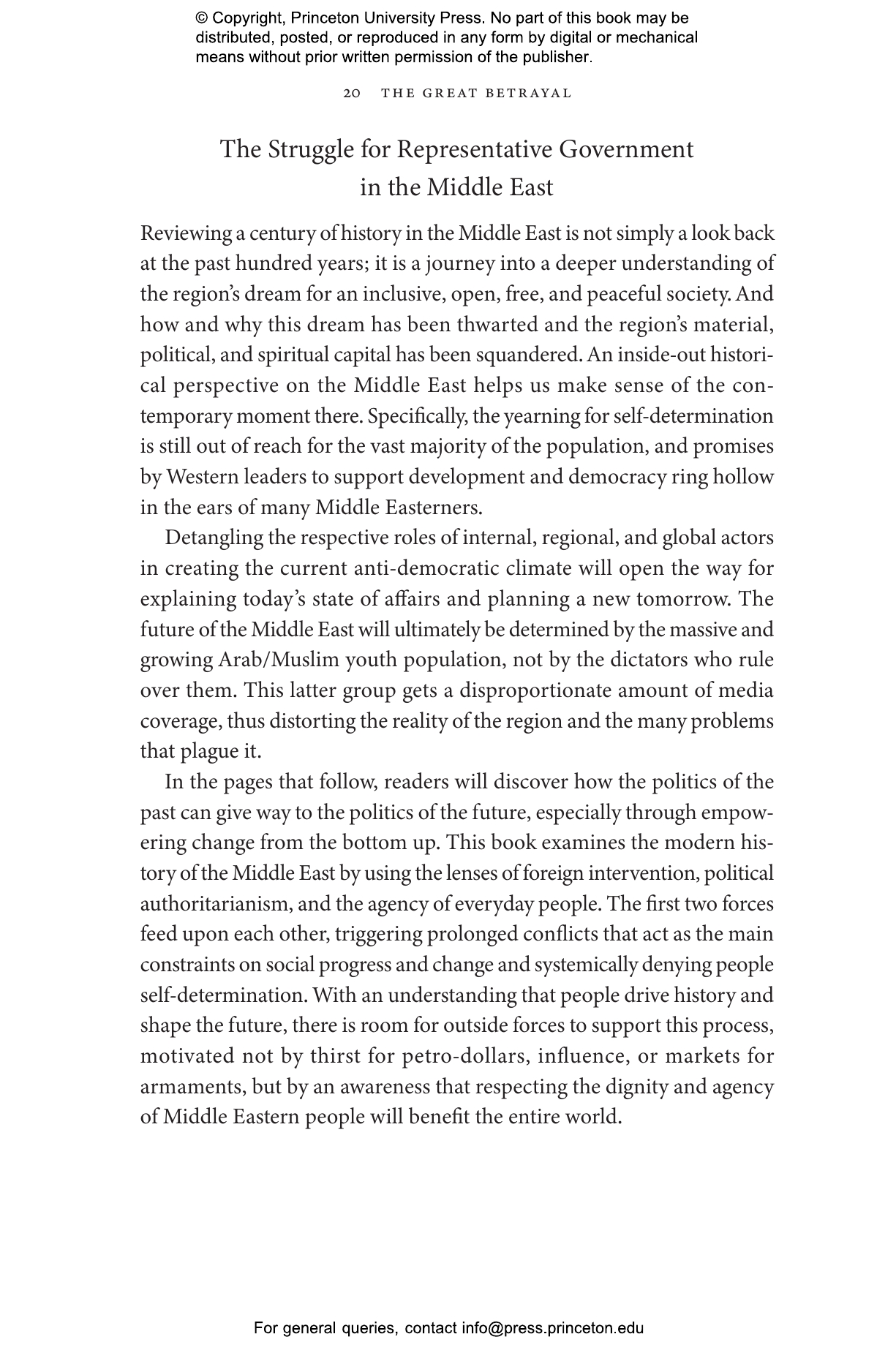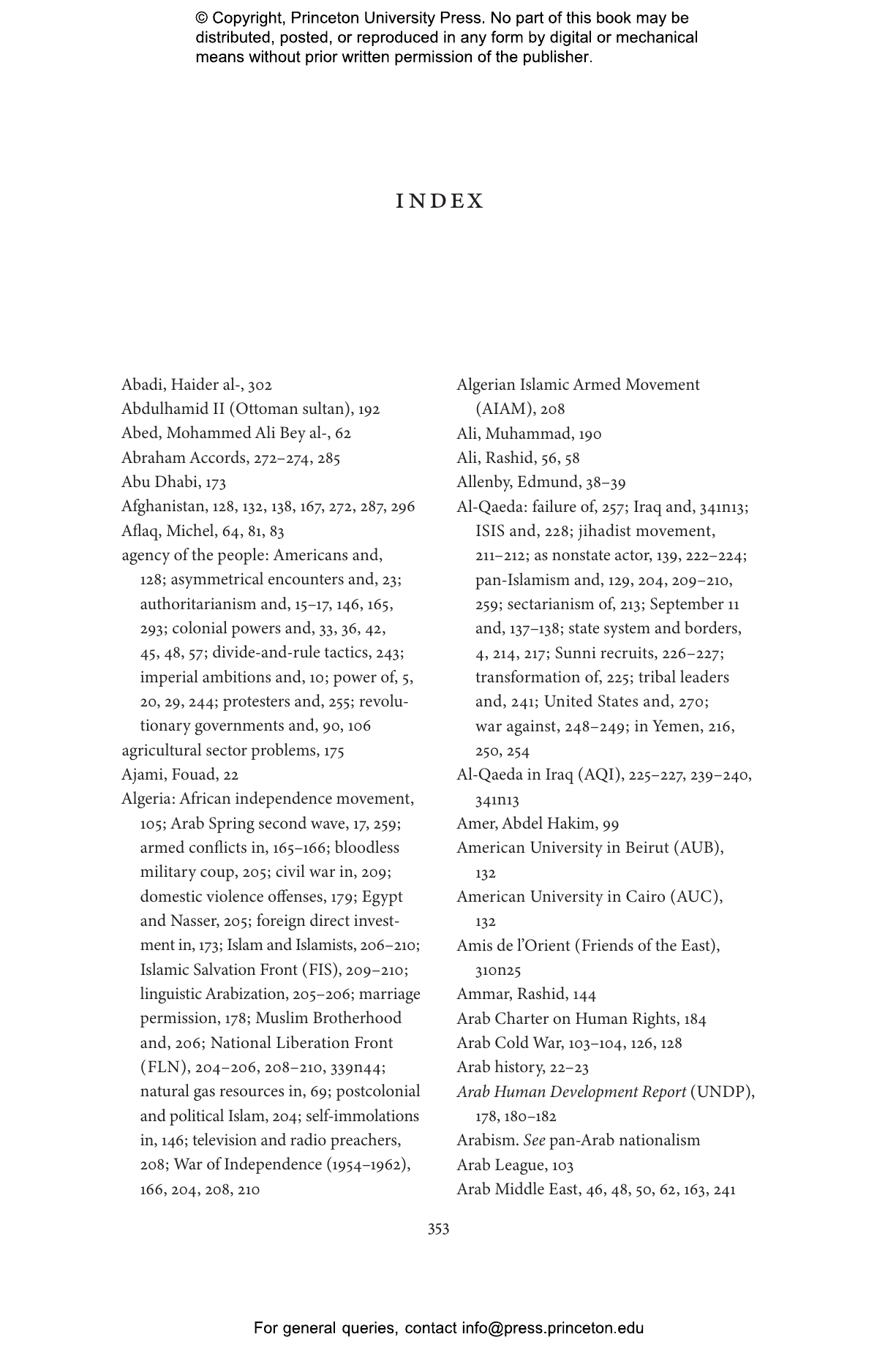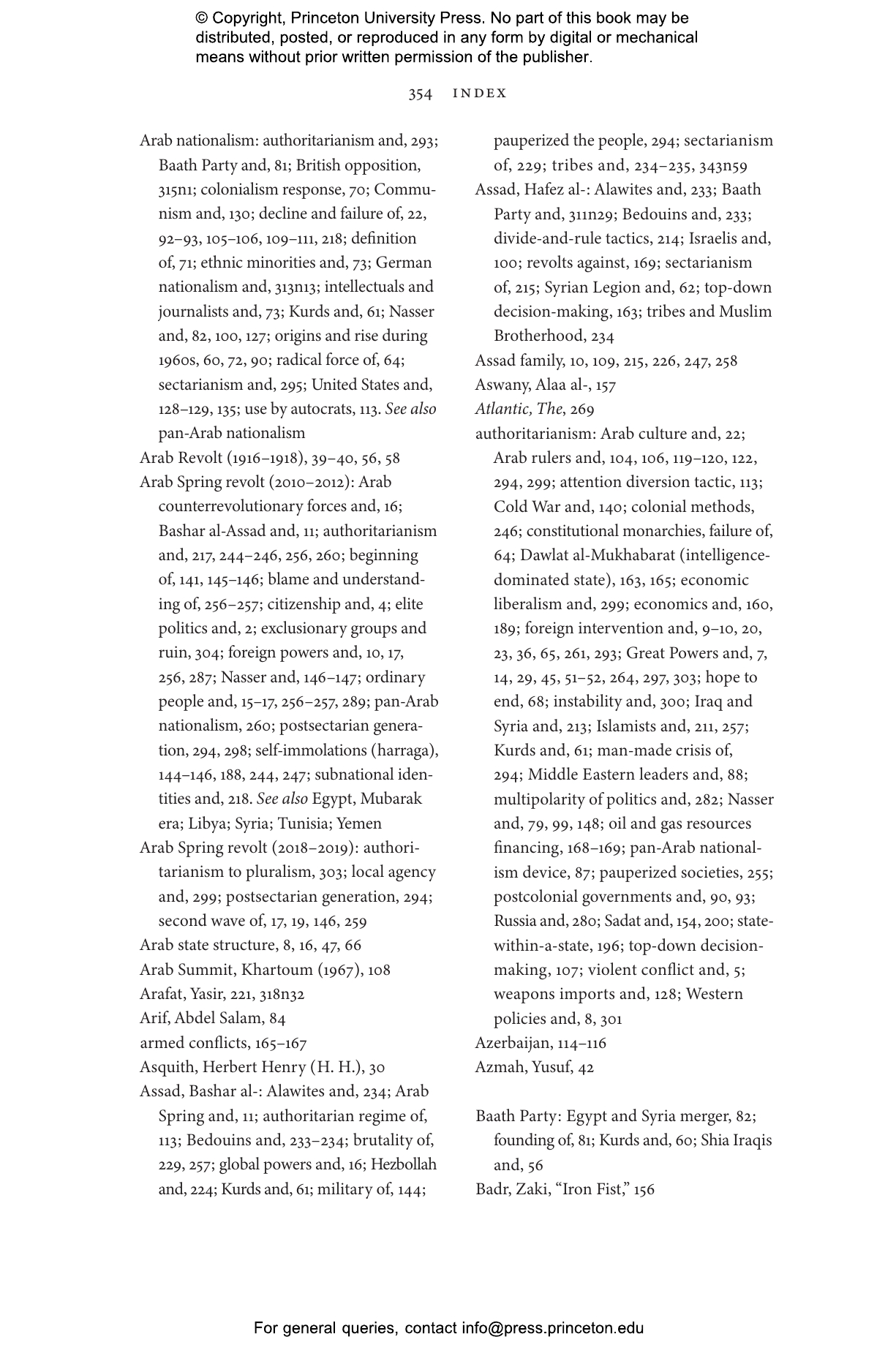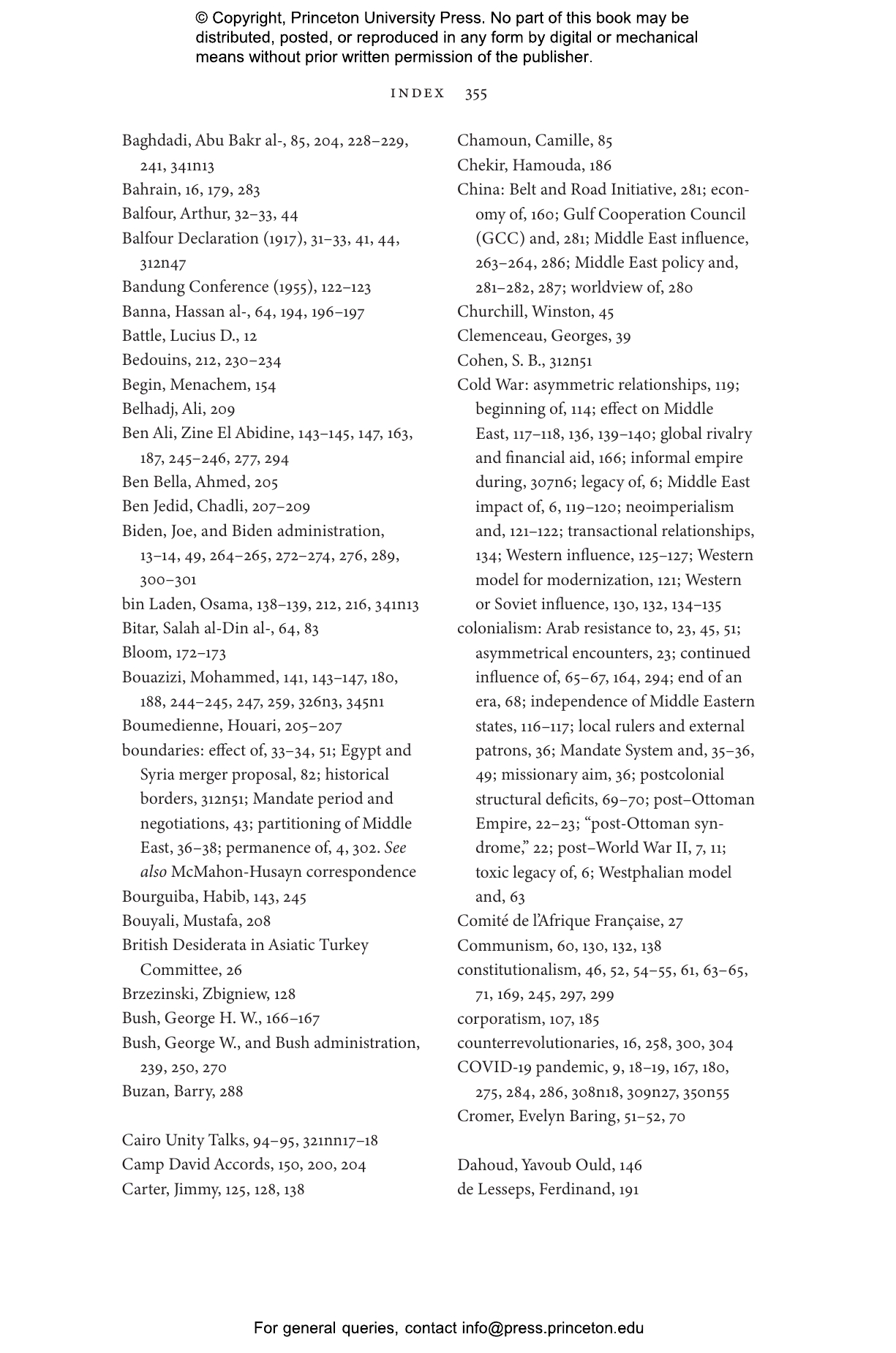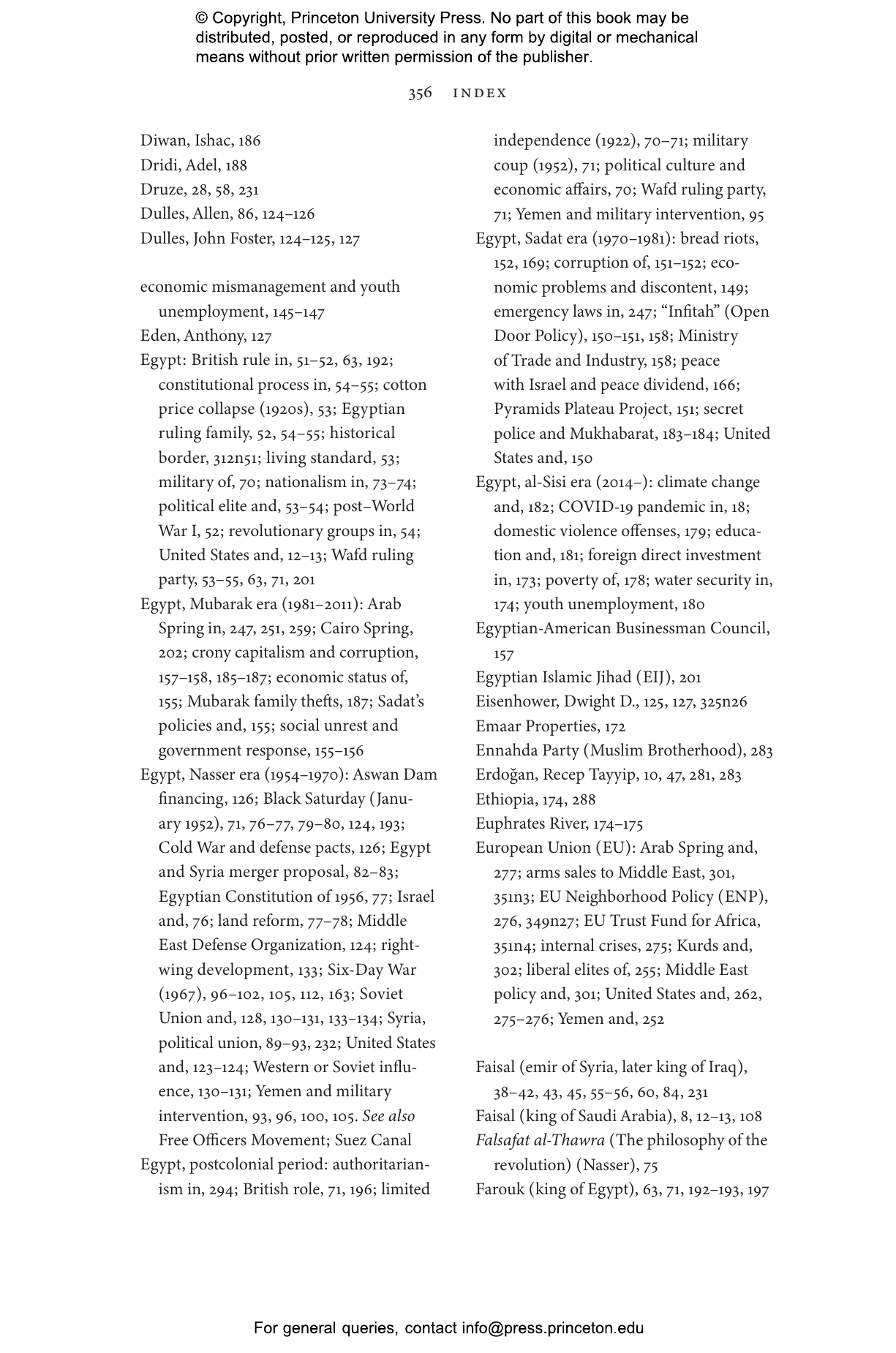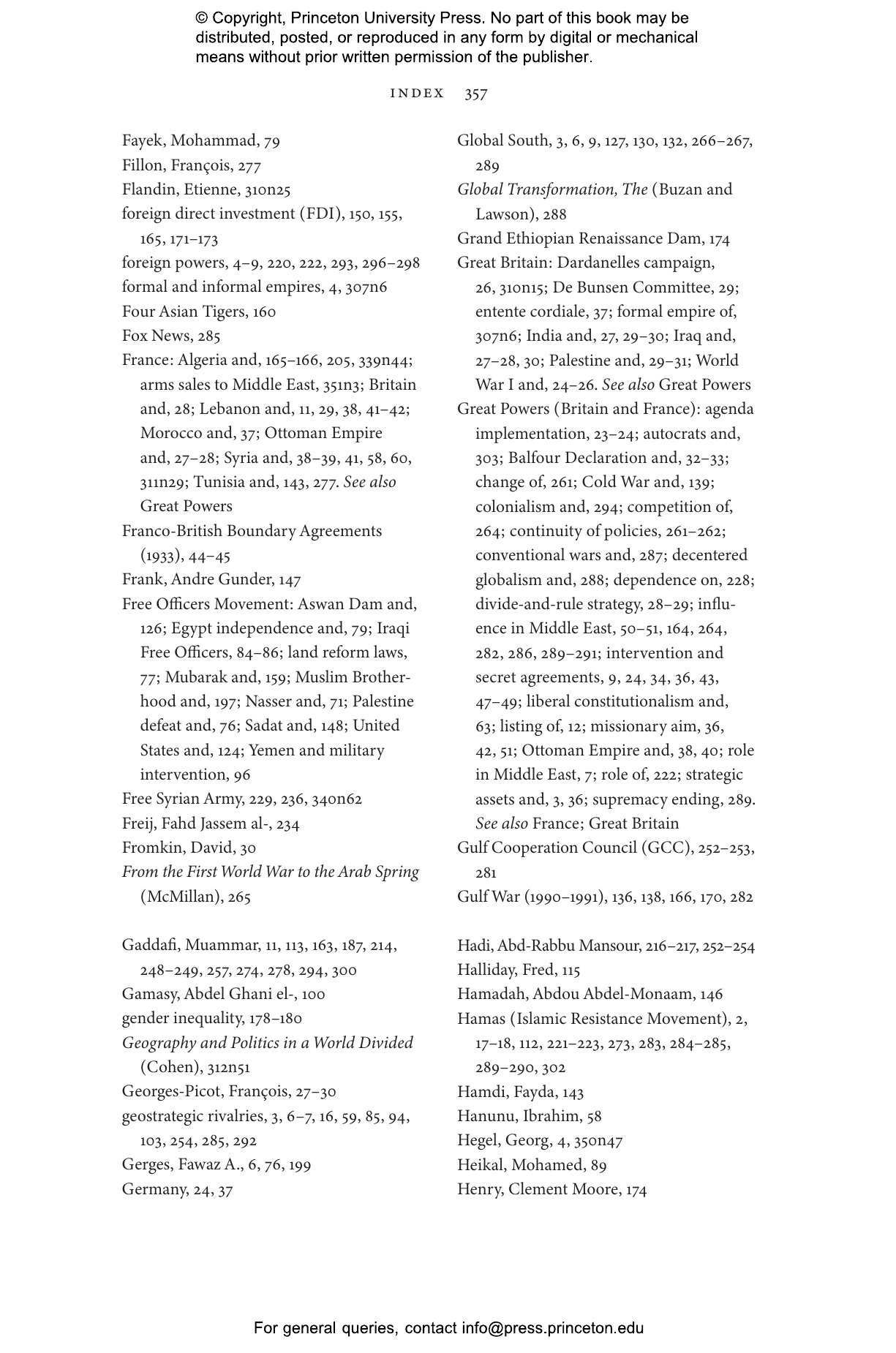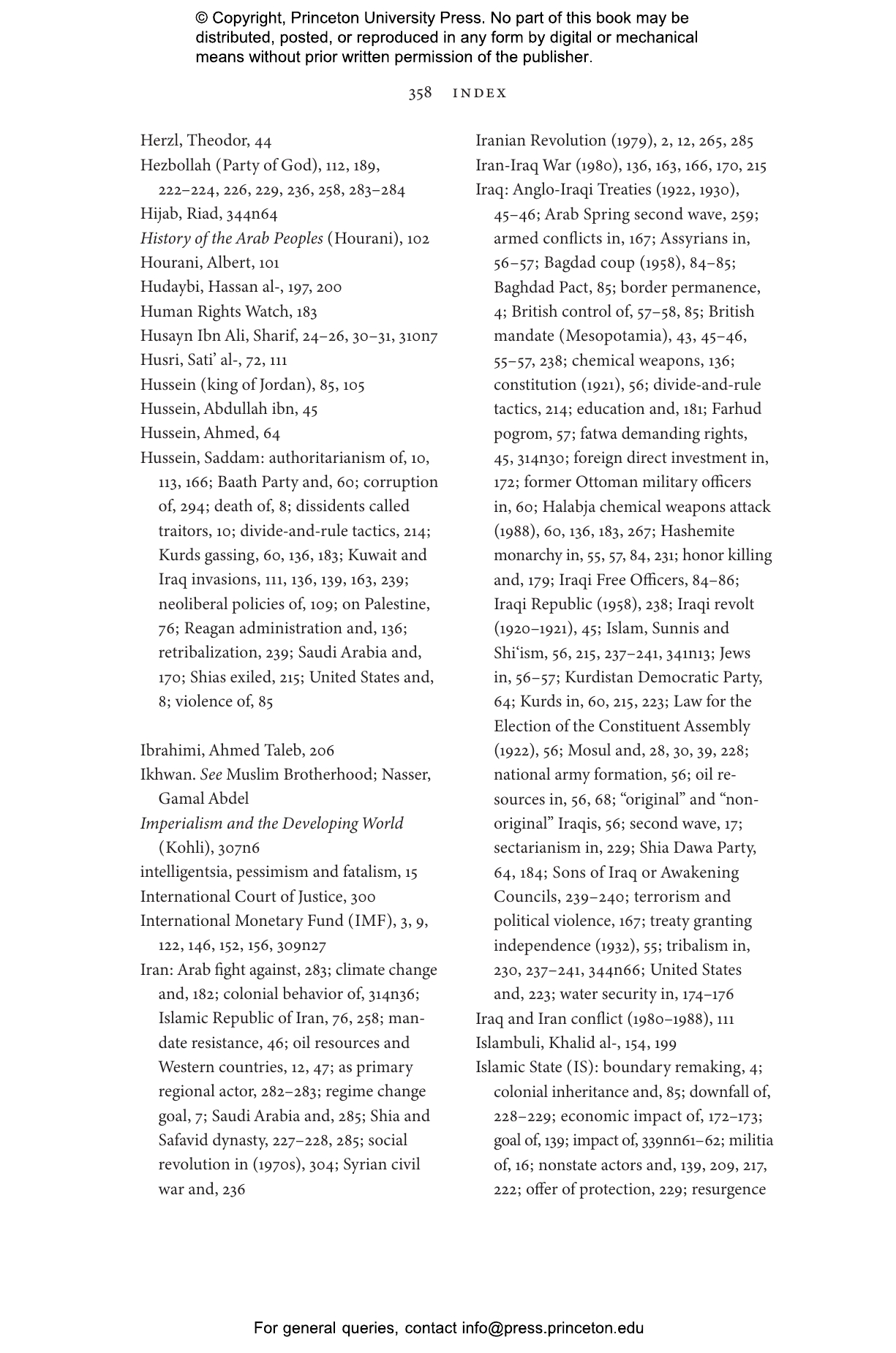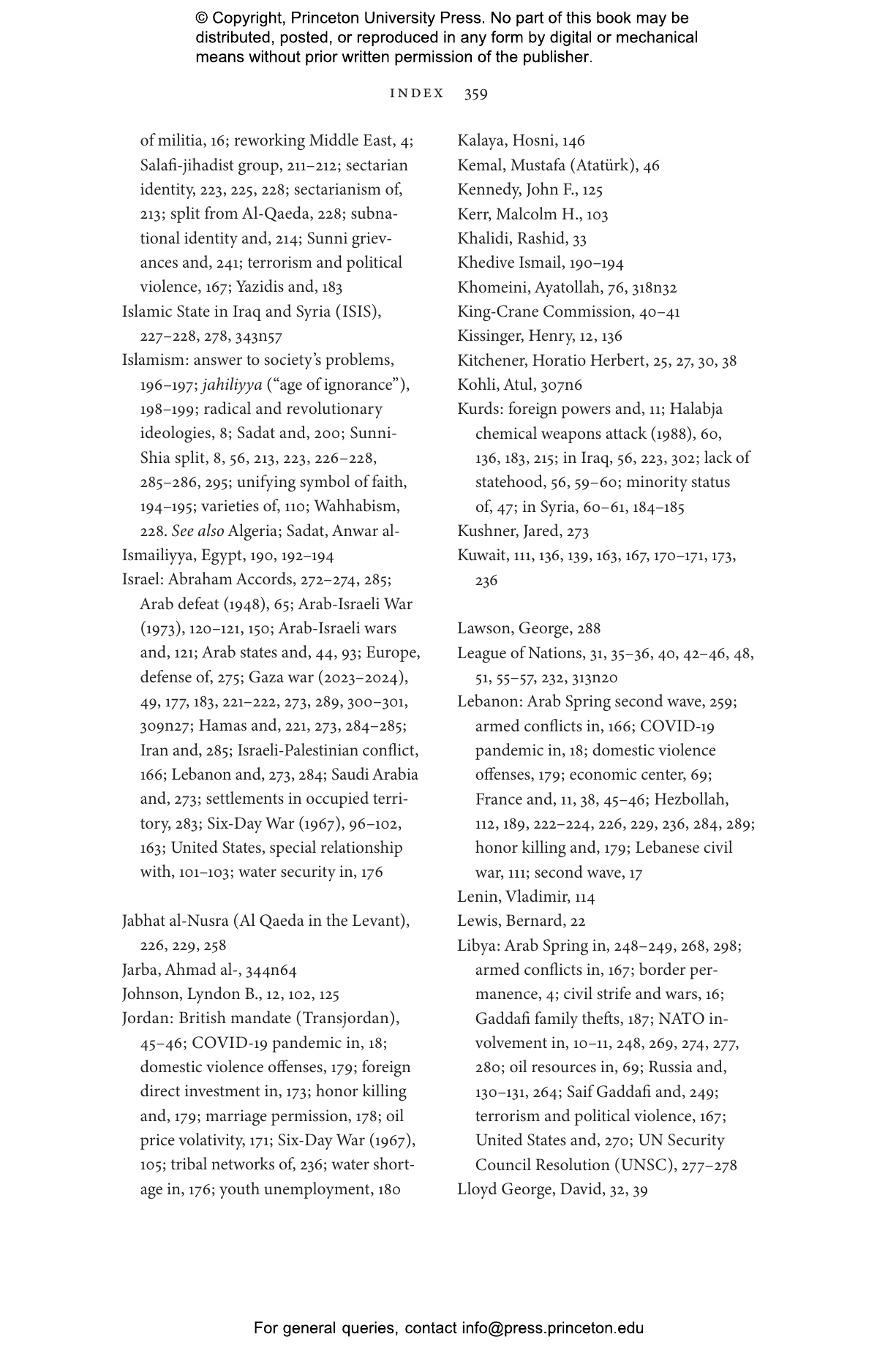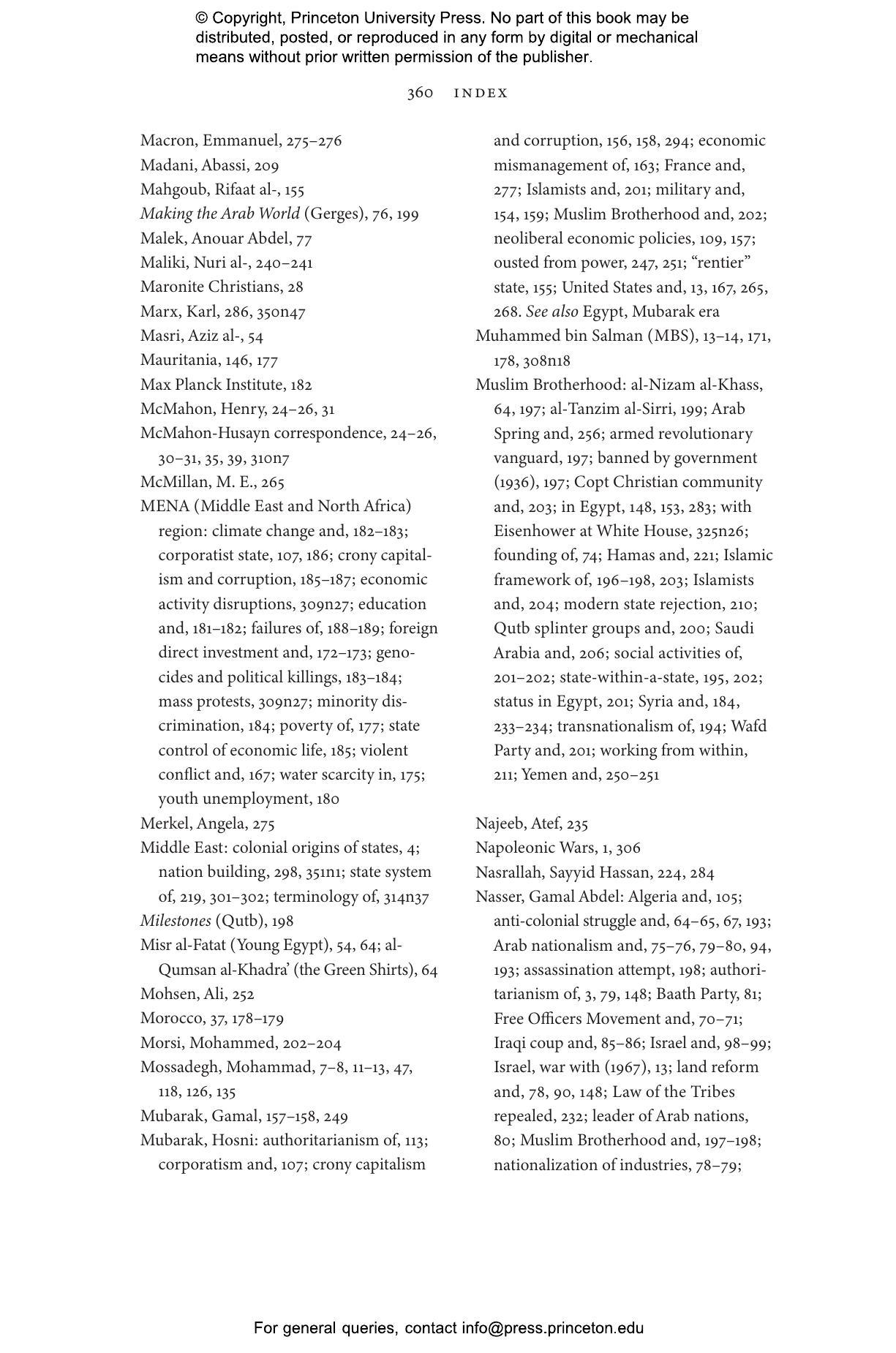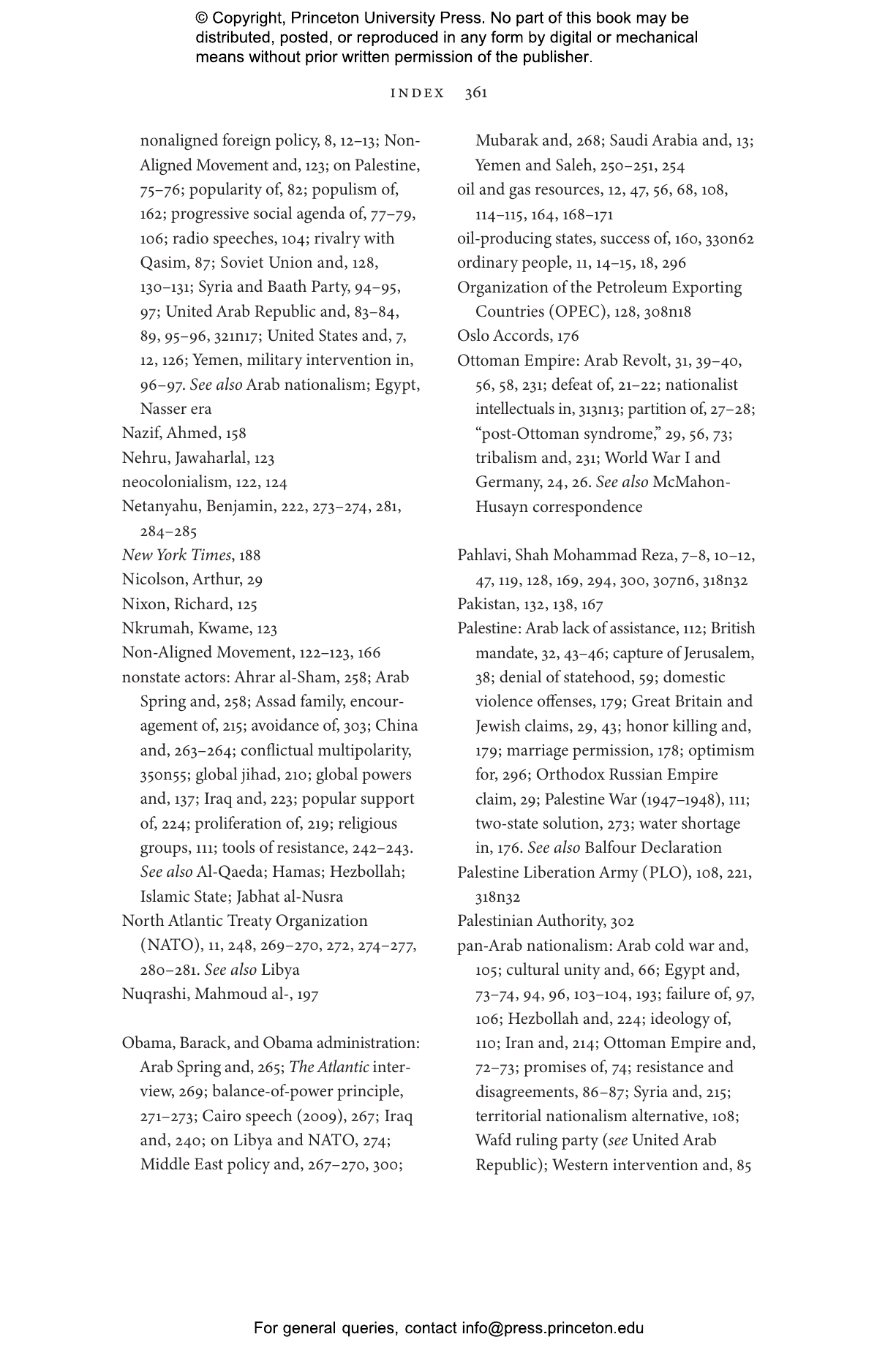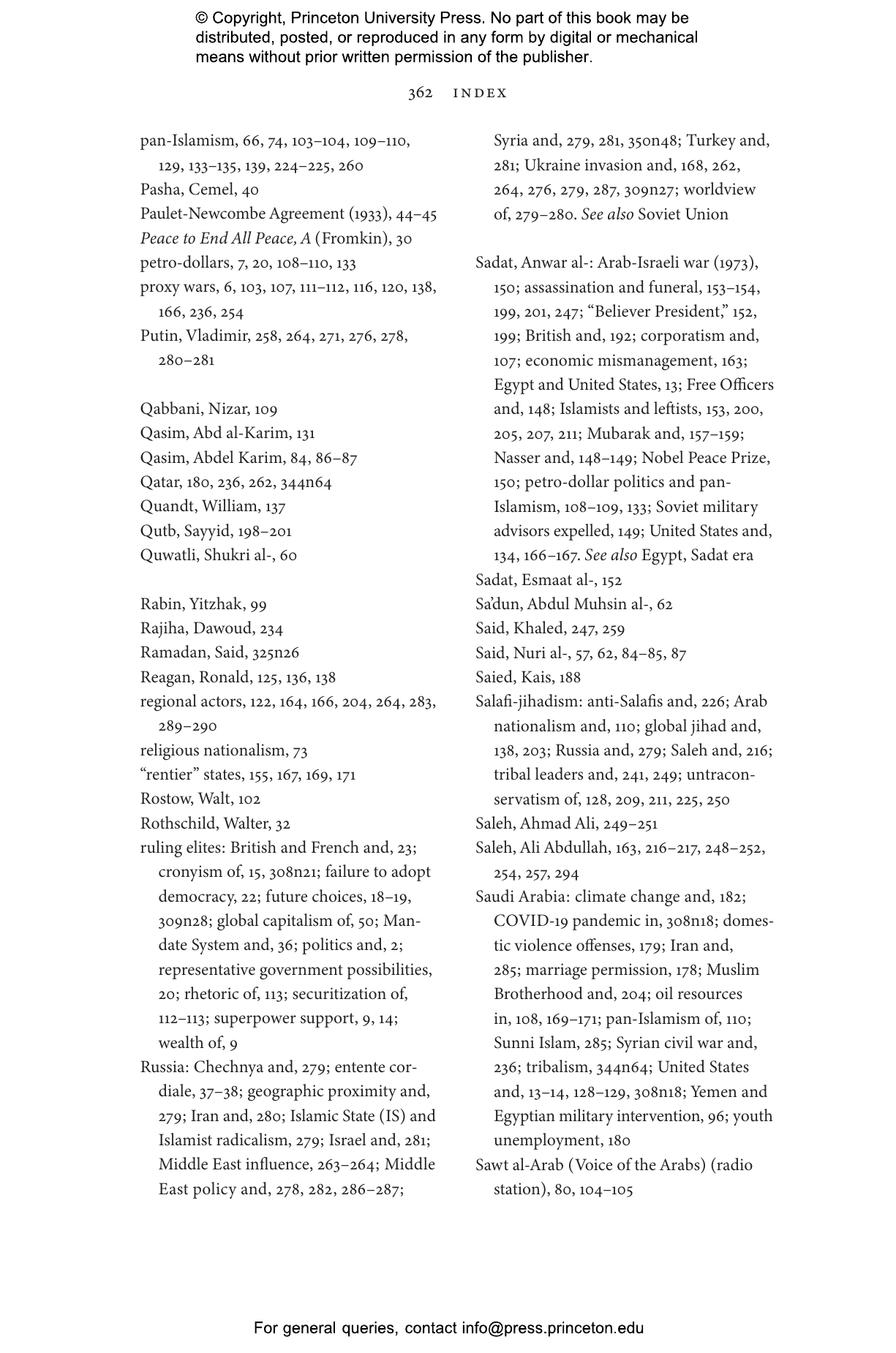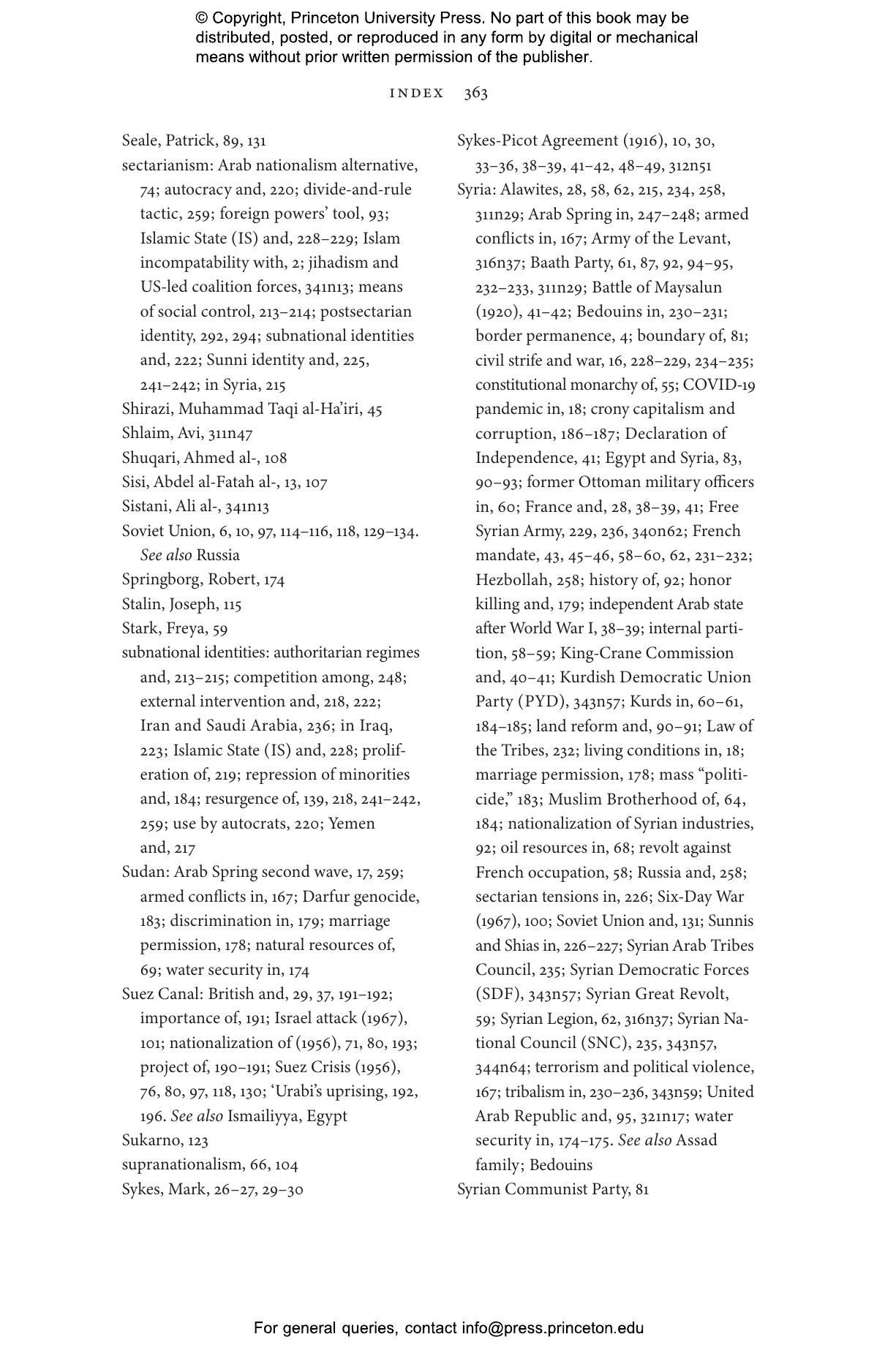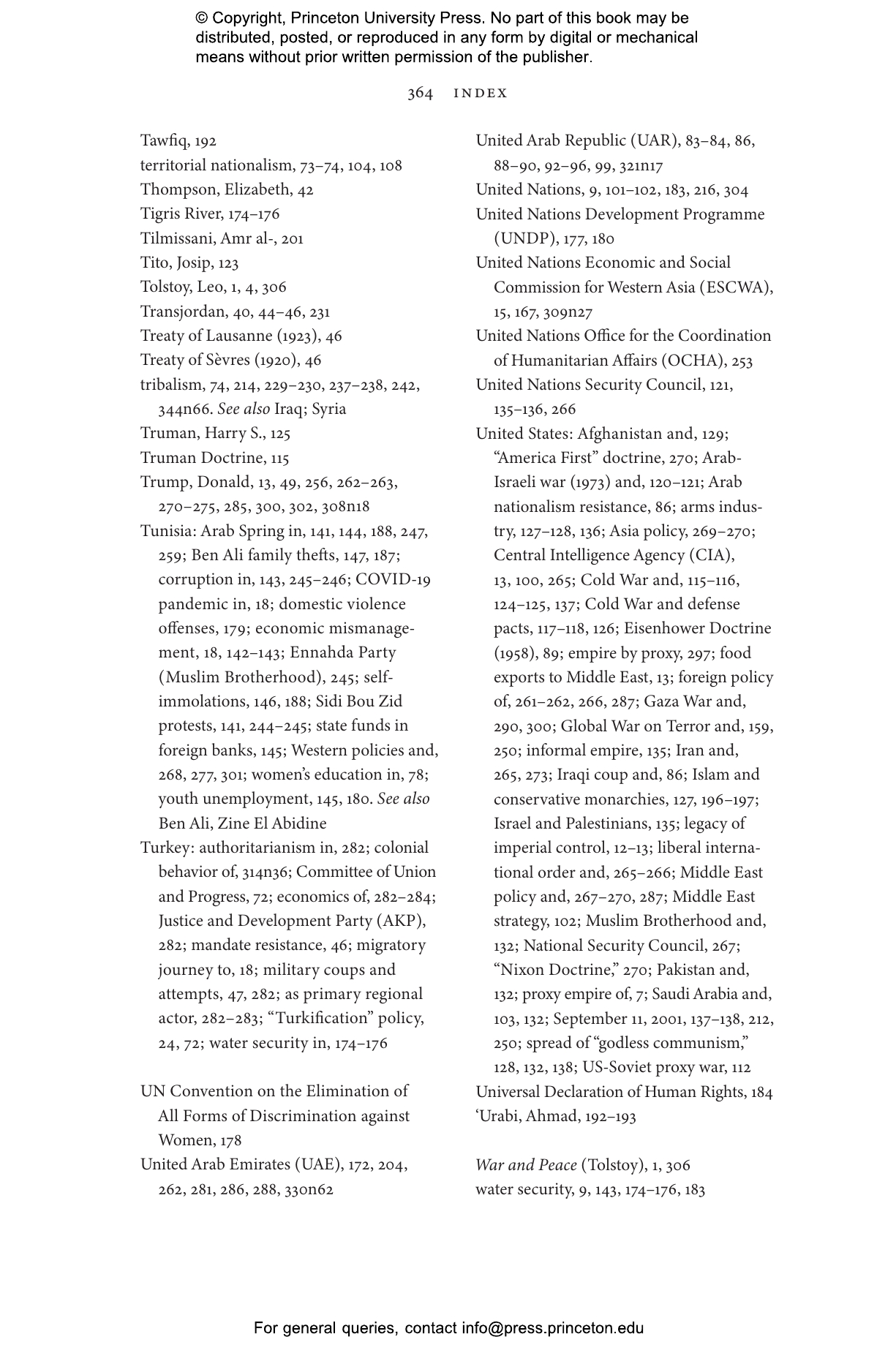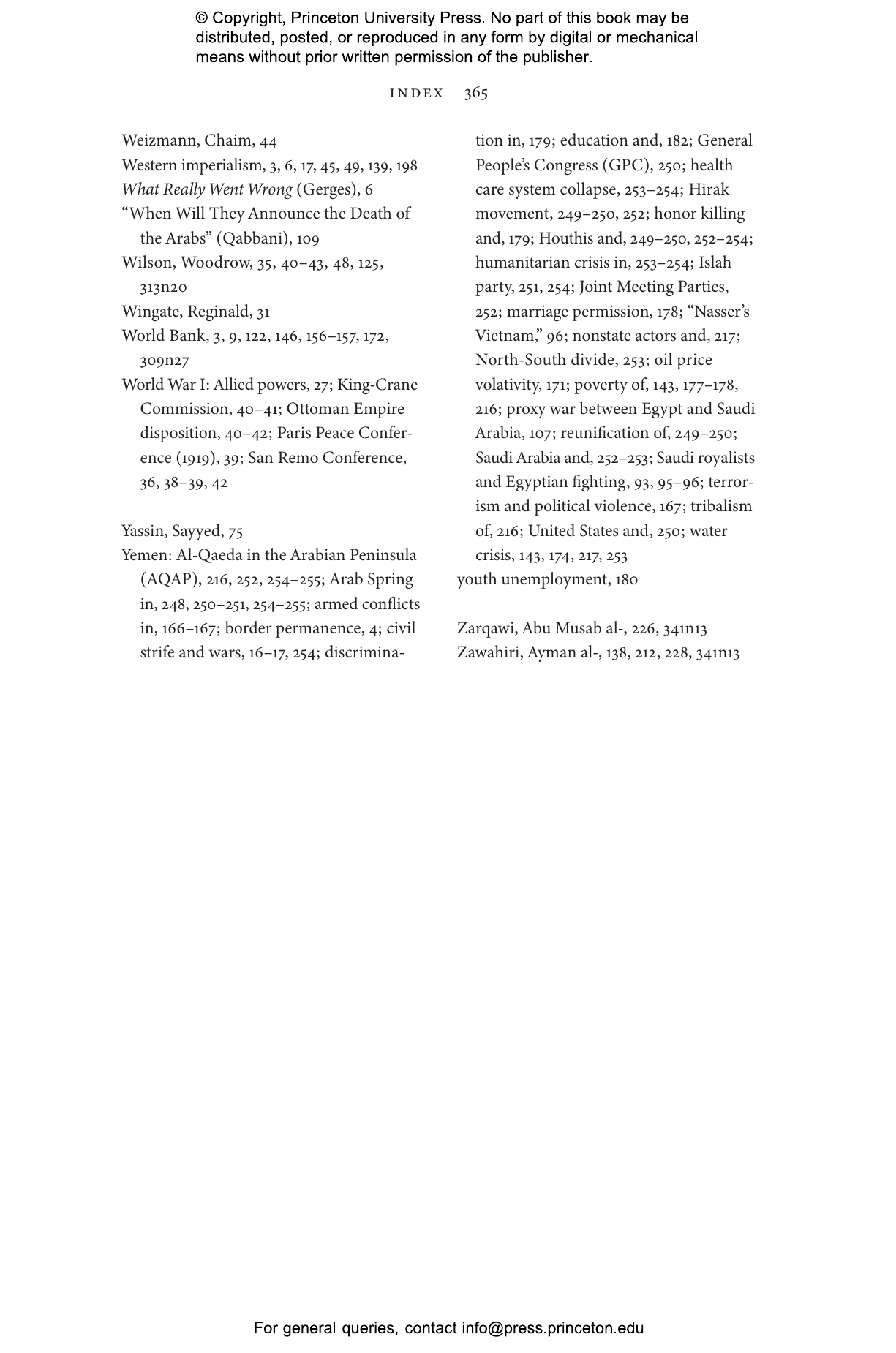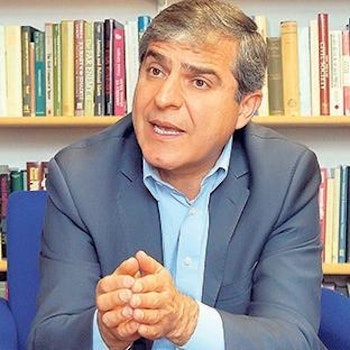The Middle East is in upheaval: a widening chasm between state and society, the failure of governing elites to address citizens’ genuine grievances, massive economic mismanagement—all made worse by repeated interventions by Western powers. Why has political change been so difficult to achieve? In The Great Betrayal, Fawaz Gerges argues that the convergence of political authoritarianism, meddling by the West, and the effects of prolonged regional conflicts have produced political paralysis and economic stagnation. The agency of everyday people has been thwarted by an authoritarian status quo that is maintained by a powerful partnership of external and internal forces.
Gerges traces more than a century of consequential events in the region, from the end of the Ottoman Empire and the European carve-up of the Middle East to the Iranian Revolution and the Arab Spring uprisings. He shows how the people of the Middle East have been systematically denied self-determination, political representation, and effective government. Gerges finds that the region, with its diversity, variability, and volatility, defies abstract grand theories; previous accounts that have attributed the Middle East’s problems to any one cause such as modernism, ignore the complexity and specificity of the issues. What can we learn from the Middle East’s vexed history? Gerges is optimistic, declaring that the region’s future will be determined not by dictators and their superpower patrons but by a growing population of Arab and Muslim youth who demand to be treated as citizens and not as subjects.
"An engaging read."—Oliver Farry, The Irish Times
"Gerges’s study will be a useful companion to observers in the years ahead."—Clinton Fernandes, Australian Book Review
"The Great Betrayal explores a wide range of subjects in varying degrees of depth, with the thrust of Gerges’ analysis examining how the decisions of post-colonial Arab rulers contributed to the region’s authoritarian governance, economic stagnation, social divisions and endemic conflict. Gerges’ expertise is complemented by his engaging prose."—Jack McGrath, Washington Report on Middle East Affairs
"Compelling."—Glenn C. Altschuler, MSN
"Gerges makes a compelling case that political and economic reform has been stifled by several mutually reinforcing factors: the toxic legacy of colonialism; continued control by foreign powers during and after World War II and the Cold War, who chose to deal with corrupt, tyrannical regimes to control the flow of oil; frequent conflicts between nation-states in the region, which have exacerbated sectarian divisions among Muslims; resurgent tribalism; and battles over water rights."—Glenn C. Altschuler, Jerusalem Post
"The book not only stimulates critical thinking but also bridges the gap between academic scholarship and real life means of effecting change."—Abidullah Baba, LSE Review of Books
“In The Great Betrayal, one of our foremost Middle East experts weighs and considers some of the contributing causes to the failure of democratic self-government to establish a durable foothold in the Arab world. Gerges emphasizes the costs of cooperation between local autocrats and foreign powers, and his hope for the collective agency of the Arab peoples to flourish is both admirable and optimistic.”—Noah Feldman, author of The Arab Winter: A Tragedy
“Fawaz Gerges is an indispensable guide to understanding how we got to the present crises in the Middle East, displaying a rare ability to explain the dialectic of imperial, nationalist, and socioeconomic forces that combined to shape the region over the past century.”—Juan Cole, University of Michigan
“Fawaz Gerges has produced a formidable and lively account of the multiple dilemmas facing the Arab world.”—Youssef M Choueiri, University of Manchester
“Gerges shifts the mainstream discussion of the Middle East in the West, which has often focused on rulers and elite politics, to a more inclusive view of societal currents. Comprehensive and accessible, this book captures the broad arc of the region’s modern history with ease.”—Elizabeth Monier, University of Cambridge
“Fawaz Gerges’s analysis of the political agency of ‘everyday people’ adds a significant dimension to his important study of the development of modern state systems in the Middle East.”—John O. Voll, Georgetown University


